

How to Write a Tourism Business Plan
by Bryan Reynolds | Jul 10, 2023 | Destination Marketing

Starting a tourism business can be an exciting venture, but it’s vital to have a solid business plan in place. Your business plan will serve as a blueprint for your business, outlining your goals, strategies, and financial projections. Here’s a step-by-step guide on how to write a tourism business plan.
Step 1: Executive Summary
- Start with an executive summary, which provides a snapshot of your business.
- It should include your business name, location, and a brief description of the services you offer.
- This section should also highlight your unique selling proposition – what sets your tourism business apart from the competition.

Step 2: Business Description
- Provide detailed information about your tourism business.
- Describe your target market, the types of tours or services you’ll offer, and your business structure (e.g., sole proprietorship, partnership, corporation).
- Also, discuss any partnerships with local businesses or organizations that will enhance your offerings.
Next up is the market analysis.
Step 3: Market Analysis
- This section requires research into the tourism industry in your area.
- Identify your competitors and analyze their strengths and weaknesses.
- Understand your target customers – their preferences, behaviors, and what they value in a tourism experience.
After understanding your market, it’s time to outline your organization and management structure.
Step 4: Organization and Management
Outline your team structure..
- Include the roles and responsibilities of each team member, and provide brief bios if possible.
- If you’re a sole proprietor, describe any outsourced roles (like accounting or marketing).

Step 5: Services or Products
- Detail the services or products your tourism business will offer.
- Whether you’re offering guided tours, travel planning, or other tourism-related services, make sure to describe each offering clearly.
- Explain the benefits of your services and how they meet the needs of your target market.
Finally, let’s talk numbers in your financial projections.
Step 6: Financial Projections
- This section should provide a clear picture of your business’s financial outlook.
- Include sales and revenue projections, a budget, a break-even analysis, and a projection of your cash flow.
- These figures will be crucial when seeking funding or investment for your tourism business.

Why do I need a business plan for my tourism business? A business plan helps you understand your business better, assists in securing funding, and serves as a roadmap for your business’s growth. A company overview is important in the travel and tourism industry. How long should my business plan be? The length of a business plan can vary significantly depending on the size and complexity of the business. However, typically, a business plan ranges from 20 to 50 pages. Who should write the business plan? As the successful business owner, you are the best person to write the business plan. However, you can also hire a professional business plan writer or use business plan software. How often should I update my business plan? It’s a good idea to update your business plan at least once a year or whenever significant changes occur in your business or industry. What if I’m starting a small tourism business and don’t have a team yet? That’s perfectly fine. In your organization and management section, simply focus on your role and any outsourced functions. Do I need to include all these sections in my business plan? Yes, each section plays a critical role in providing a comprehensive view of your business. However, the depth of detail in each section can vary based on your specific business. Can I use my business plan to secure funding? Absolutely. Investors and lenders will often request to see a business plan to understand the viability and potential of your business. A well-crafted business plan is crucial for the success of your tourism business. By following this guide, you’ll be well on your way to creating a comprehensive and effective business plan.
Best Practices when Writing a Tourism Business Plan Template
Writing a business plan for a tourism business involves several best practices that can increase the likelihood of your venture’s success. Here are some key points to consider:
1. Be Clear About Your Business Idea:
- Define your tourism business concept clearly.
- Specify the type of services you will provide, such as guided tours, travel planning, or accommodation booking.
2. Conduct Thorough Market Analysis:
- Identify your target audience and understand their needs and preferences.
- Analyze your competitors, their offerings, strengths, and weaknesses.
3. Create a Unique Selling Proposition (USP):
- Determine what sets your tourism business apart from competitors.
- Your USP could be unique tour packages, superior customer service, or partnerships with local businesses.
4. Detail Your Marketing Strategy:
- Develop a marketing and sales strategy to attract and retain customers.
- This could involve online advertising, social media promotion, collaborations with local businesses, or special offers for repeat customers.
5. Plan Your Operations:
- Outline how your business will operate on a day-to-day basis.
- Include details about logistics, staff requirements, equipment needed, and any regulatory compliance issues.
6. Develop a Financial Plan:
- Prepare a detailed financial plan, including revenue projections, budget, and break-even analysis.
- This section is crucial if you’re seeking investment or loans.
7. Review and Revise Regularly:
- A business plan should not be a static document. Review and update it regularly to keep it aligned with your current business situation and future goals.
Remember, your business plan is not just a document for potential investors or lenders; it’s also a roadmap for your business, guiding your decisions and strategies. By adhering to these best practices, you can create a robust business plan that sets your tourism business up for success.
- Company Updates
- Customer Spotlight
- Destination Marketing
- Digital Signage
- Employee Engagement
- Internal Communications
- New Features
- Newsletters
- Product Updates
- Touch Kiosks
- Visitor Information
Recent Posts
Grow digital kiosk and signage engagement with hootboard os, free events calendar template for a website, office facility space management ideas.
- How to Optimize the Best Office Layouts for Productivity
- Digital Lobby Signage Ideas for an Office
- Knowledge Base
- Setup a Demo
- Privacy Policy
- Terms of Use
Related Posts
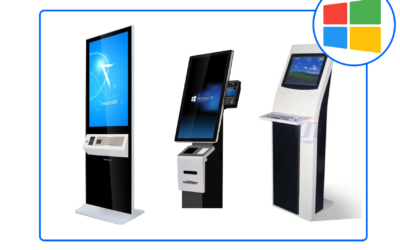
by Bryan Reynolds | Digital Signage , Touch Kiosks
Delivering information effectively and engagingly is more important than ever. Whether you're in travel & tourism,...

by Bryan Reynolds | Templates
It's time to upgrade your digital space and captivate your visitors with the latest interactive events calendar – the...

by Bryan Reynolds | Employee Engagement
I took a look at some of the research available for creating an environment that fosters productivity, comfort, and a...
Tell Us a Little About You To Get Started
Email Address
Organisation
Phone Number
Industry Industry Travel & Tourism Smart City Education Workplaces Industry Agnostic Others
Travel Agency Business Plan Template
Written by Dave Lavinsky
Travel Agency Business Plan
You’ve come to the right place to create your Travel Agency business plan.
We have helped over 10,000 entrepreneurs and business owners create business plans and many have used them to start or grow their travel agencies.
Below is a template to help you create each section of your Travel Agency business plan.
Executive Summary
Business overview.
My Itinerary Travel Agency is a new travel agency located in Boca Raton, Florida. The company is founded by Sandra Rodriguez, an experienced travel agent who has gained valuable knowledge on how to run a travel agency during the past ten years while working at Fun Destinations Travel Agency. Now that Sandra has experienced managing a travel agency, she is ready to start her own company, My Itinerary Travel Agency. Sandra is confident that her organizational and communication skills, combined with her understanding of business management, will enable her to run a profitable travel agency of her own. Sandra is recruiting a team of highly qualified professionals to help manage the day-to-day complexities of running a travel agency – sales and marketing, vendor relationships, customer relationship management, budgeting, and financial reporting.
My Itinerary Travel Agency will provide a full suite of travel planning services for individuals nationwide through its sophisticated online platform and accompanying customer app. My Itinerary Travel Agency will be the go-to travel agency for personalized service, convenience, and expertise of its travel agents. The company will be the ultimate choice for customer service while offering the best travel accommodations available.
Product Offering
The following are the services that My Itinerary Travel Agency will provide:
- Airline travel bookings
- Tour and travel package sales
- Accommodation reservations and bookings
- Cruise bookings
- Car rental reservations
- Travel ticket sales and reservations
- Tour ticket sales and reservations
Customer Focus
My Itinerary Travel Agency will target individuals nationwide who are looking for personalized and convenient travel planning services. The company will target vacationers, tourists, and business travelers who are seeking the best deals on premium accommodations. No matter the customer, My Itinerary Travel Agency will deliver the best communication, service, and the best prices.
Management Team
My Itinerary Travel Agency will be owned and operated by Sandra Rodriguez. Sandra is a graduate of Florida University with a degree in business. She has over ten years of experience working as a travel agent for another local agency. Sandra will be the company’s chief executive officer. She will oversee the travel agency staff, manage customer relationships, and build vendor relationships.
Sandra has recruited sales and marketing expert, Sara Anderson, to be the company’s chief marketing officer and help oversee travel agency’s sales and marketing activities. Sara will handle all branding, marketing, advertising, and outreach for the company. She will also create and maintain the company’s online and social media presence. Sara has a Master’s degree in Marketing and has nearly ten years of experience working as a marketing director for a leading travel industry corporation.
Success Factors
My Itinerary Travel Agency will be able to achieve success by offering the following competitive advantages:
- Skilled team of travel agents combined with the latest technology in the industry will allow the company to provide its clients with personalized service and modern convenience to make planning their trip easy and efficient.
- The members of the leadership team have long standing relationships with a large pool of vendors, allowing them to provide clients with the best deals possible on premium accommodations.
- The company offers a variety of modes of communication to better serve more clients’ preferences. Customers can speak with a travel agent in person, via telephone, video call, email, or chat through the website or app. Support is available 24/7 to ensure all clients’ questions and concerns are promptly attended to.
Financial Highlights
My Itinerary Travel Agency is seeking $290,000 in debt financing to launch its travel agency. The funding will be dedicated towards securing the office space, and purchasing office equipment and supplies. Funding will also be dedicated towards three months of overhead costs to include payroll of the staff and marketing expenses. The breakout of the funding is below:
- Office build-out: $110,000
- Office equipment, supplies, and materials: $70,000
- Three months of overhead expenses (payroll, utilities): $90,000
- Marketing costs: $10,000
- Working capital: $10,000
The following graph below outlines the pro forma financial projections for My Itinerary Travel Agency.
Company Overview
Who is my itinerary travel agency.
My Itinerary Travel Agency is a newly established travel agency in Boca Raton, Florida. My Itinerary Travel Agency will be the first choice for anyone seeking a personalized approach, 24/7 support, and streamlined technology to make trip planning easy. The company will serve customers nationwide from their headquarters in Florida.
My Itinerary Travel Agency will be able to guarantee the best deals possible thanks to the leadership team members’ long standing relationships with a large network of vendors in the hospitality, transportation, and entertainment markets. The company’s team of highly qualified travel agents will provide personalized service to each client, removing the uncertainty and hassles associated with finding and booking the right accommodations.
My Itinerary Travel Agency History
My Itinerary Travel Agency is owned and operated by Sandra Rodriguez, an experienced travel agent who has gained valuable knowledge on how to run a travel agency during the past ten years while working at Fun Destinations Travel Agency. Now that Sandra has experienced managing a travel agency, she is ready to start her own company, My Itinerary Travel Agency. Sandra is confident that her organizational and communication skills, combined with her understanding of business management, will enable her to run a profitable travel agency of her own. Sandra is recruiting a team of highly qualified professionals to help manage the day-to-day complexities of running a travel agency – sales and marketing, vendor relationships, customer relationship management, budgeting, and financial reporting.
Since incorporation, My Itinerary Travel Agency has achieved the following milestones:
- Registered My Itinerary Travel Agency, LLC to transact business in the state of Florida
- Has identified the ideal location for the company’s office and is in the process of securing a lease
- Reached out to numerous contacts to include transportation, hospitality, and entertainment companies to begin securing vendor contracts
- Began recruiting a staff of accountants, travel agents, and other office personnel to work at My Itinerary Travel Agency
My Itinerary Travel Agency Services
- Airline travel comparisons and bookings
Industry Analysis
The U.S. travel agency industry is valued at $48.5B with more than 90,600 businesses in operation and over 318,600 employees nationwide. Factors currently driving industry growth include an increase in domestic tourism and travel for overnight trips, vacations, and business purposes. More domestic travel typically results in more consumers using travel agencies to book their trips. The travel agency industry can be segmented by brick-and-mortar establishments or online businesses. The global market size for the online travel agency segment reached $432B last year and is expected to rise as more people use the internet to book their trips. The travel agency industry relies heavily on the use of technology. Industry operators must stay up-to-date on the latest travel technology in order to remain competitive in the market.
One of the most significant hurdles for travel agency operators is attracting customers in the age of do-it-yourself booking. Now that customers are able to book many of their travel accommodations themselves, travel agents must be able to demonstrate why booking with them is a better option. Some ways industry operators can add value are by providing personalized services, promotional discounts, and helpful information about accommodation options.
Customer Analysis
Demographic profile of target market.
My Itinerary Travel Agency will target individuals nationwide who are looking for personalized and convenient travel planning services. The company will target vacationers, tourists, and business travelers who are seeking the best deals on premium accommodations. No matter the customer, My Itinerary Travel Agency will deliver professional communication, service, and the best prices.
The precise demographics for Boca Raton, Florida are:
Customer Segmentation
My Itinerary Travel Agency will primarily target the following customer profiles:
- Individuals and families planning a vacation
- Business travelers
- Individuals and families in need of accommodations for events such as weddings, reunions, or conventions
Competitive Analysis
Direct and indirect competitors.
My Itinerary Travel Agency will face competition from other companies with similar business profiles. A description of each competitor company is below.
Fun Destinations Travel Agency
Fun Destinations Travel Agency is one of the largest and oldest travel agencies in Florida. The company was founded in 1958 in Boca Raton with one small office location. Now, the company has over 50 locations throughout multiple states. Fun Destinations specializes in booking accommodations for family vacationers. The company books accommodations near key family destinations such as theme parks, resorts, and tourist attractions. Fun Destinations is family owned and operated so the founders are familiar with the hassles associated with planning a family vacation. For this reason, Fun Destinations focuses on booking the best family-friendly accommodations so its clients can relax and enjoy the family fun.
Best Fit Vacations Travel Agency
Best Fit Vacations Travel Agency is a small travel agency catering to Boca Raton locals from its central office and nationwide clients via its online booking platform. The company was established in 1995 with the mission of providing vacation accommodations that will be “the best fit” for every client. Best Fit Vacations is owned and operated by industry professionals that have extensive experience working with vendors to negotiate the best deals for clients. The company strives to get the lowest prices for every booking and regularly finds additional savings and discounts other agencies might not know about.
Trustworthy Travel Agency
Trustworthy Travel Agency is a Boca Raton, Florida-based travel agency that provides superior service to its consumers. The company is able to provide a wide variety of travel accommodation bookings for customers in the area. Trustworthy Travel Agency has three locations throughout the state and operates an online booking platform for nationwide travelers. Customers can book online or over the phone at their convenience. The company uses an algorithm that finds the lowest prices on travel, lodging, and other accommodations across the country.
Competitive Advantage
My Itinerary Travel Agency will be able to offer the following advantages over their competition:
Marketing Plan
Brand & value proposition.
My Itinerary Travel Agency will offer the unique value proposition to its clientele:
- My Itinerary Travel Agency offers the best deals through its extensive vendor network.
- The company offers personalized customer service, a variety of communication modes, and 24/7 support.
Promotions Strategy
The promotions strategy for My Itinerary Travel Agency is as follows:
Social Media Marketing
The company’s chief marketing officer will create accounts on social media platforms such as LinkedIn, Twitter, Instagram, Facebook, TikTok, and YouTube. She will ensure My Itinerary Travel Agency maintains an active social media presence with regular updates and fun content to get customers excited about traveling.
Professional Associations and Networking
My Itinerary Travel Agency will become a member of professional associations such as the Travel Agency Association, American Travel Agents Society, and the Florida Travel Industry Association. The leadership team will focus their networking efforts on expanding the company’s vendor network.
Print Advertising
My Itinerary Travel Agency will invest in professionally designed print ads to display in programs or flyers at industry networking events. The company will also invest in professional ads to place in travel magazines and local publications.
Website/SEO Marketing
My Itinerary Travel Agency’s chief marketing officer will design the company website. The website will be well organized, informative, and list all the services that My Itinerary Travel Agency is able to provide. The website will also list testimonials from happy customers.
The chief marketing officer will also manage My Itinerary Travel Agency’s website presence with SEO marketing tactics so that when someone types in a search engine “best travel agency” or “travel agency near me”, My Itinerary Travel Agency will be listed at the top of the search results.
The pricing of My Itinerary Travel Agency will be on par with (and often lower than) competitors so customers feel they receive value when purchasing the company’s services.
Operations Plan
The following will be the operations plan for My Itinerary Travel Agency.
Operation Functions:
- Sandra Rodriguez will be the chief executive officer for the company. She will oversee the travel agents, vendor relationships, and customer relations. Sandra has spent the past year recruiting the following staff:
- Sara Anderson – chief marketing officer who will oversee all marketing strategies for the company and manage the website, social media, and outreach
- Tom Brown – accountant who will provide all accounting, tax payments, and monthly financial reporting for the company
- Christopher Jones – lead customer support manager who will directly oversee all customer support activities
Milestones:
My Itinerary Travel Agency will have the following milestones complete in the next six months.
12/1/2022 – Finalize contract to lease the office
12/15/2022 – Finalize personnel and staff employment contracts for the My Itinerary Travel Agency management team
1/1/2023 – Begin build-out/renovation of the office, and purchase office equipment and supplies
1/15/2023 – Begin networking at industry events and implement the marketing plan
2/15/2023 – Finalize contracts for initial vendors
3/15/2023 – My Itinerary Travel Agency officially opens for business
Financial Plan Business Plan FAQs
Key revenue & costs.
The revenue drivers for My Itinerary Travel Agency are the commissions earned as a percentage of bookings from vendors and fees charged to customers for consultations and services.
The cost drivers will be the overhead costs required in order to staff a travel agency firm. The expenses will be the payroll cost, utilities, greenhouse equipment and supplies, and marketing materials.
Funding Requirements and Use of Funds
Key assumptions.
The following outlines the key assumptions required in order to achieve the revenue and cost numbers in the financials and in order to pay off the startup business loan.
- Average accommodations booked per month: 9,000
- Average commissions per month: $15,000
- Overhead costs per year: $640,000
Financial Projections
Income statement, balance sheet, cash flow statement, what is a travel agency business plan.
A travel agency business plan is a plan to start and/or grow your travel agency business. Among other things, it outlines your business concept, identifies your target customers, presents your marketing plan and details your financial projections.
You can easily complete your travel agency business plan using our travel agency Business Plan Template here .
What are the Main Types of Travel Agencies?
There are a number of different kinds of travel agencies , some examples include: independent agency, host agency or franchise.
How Do You Get Funding for Your Travel Agent Business Plan?
Travel agencies are often funded through small business loans. Personal savings, credit card financing and angel investors are also popular forms of funding. This is true for a travel agent business plan and a tour and travel business plan.
What are the Steps To Start a Travel Agency Business?
Starting a travel agency business can be an exciting endeavor. Having a clear roadmap of the steps to start a business will help you stay focused on your goals and get started faster.
1. Develop A Travel Agent Business Plan - The first step in starting a business is to create a detailed business plan for your travel agency that outlines all aspects of the venture. This should include potential market size and target customers, the services or products you will offer, pricing strategies and a detailed financial forecast.
2. Choose Your Legal Structure - It's important to select an appropriate legal entity for your travel agency business. This could be a limited liability company (LLC), corporation, partnership, or sole proprietorship. Each type has its own benefits and drawbacks so it’s important to do research and choose wisely so that your travel agency business is in compliance with local laws.
3. Register Your Travel Agency Business - Once you have chosen a legal structure, the next step is to register your travel agency business with the government or state where you’re operating from. This includes obtaining licenses and permits as required by federal, state, and local laws.
4. Identify Financing Options - It’s likely that you’ll need some capital to start your travel agency business, so take some time to identify what financing options are available such as bank loans, investor funding, grants, or crowdfunding platforms.
5. Choose a Location - Whether you plan on operating out of a physical location or not, you should always have an idea of where you’ll be based should it become necessary in the future as well as what kind of space would be suitable for your operations.
6. Hire Employees - There are several ways to find qualified employees including job boards like LinkedIn or Indeed as well as hiring agencies if needed – depending on what type of employees you need it might also be more effective to reach out directly through networking events.
7. Acquire Necessary Travel Agency Equipment & Supplies - In order to start your travel agency business, you'll need to purchase all of the necessary equipment and supplies to run a successful operation.
8. Market & Promote Your Business - Once you have all the necessary pieces in place, it’s time to start promoting and marketing your travel agency business. This includes creating a website, utilizing social media platforms like Facebook or Twitter, and having an effective Search Engine Optimization (SEO) strategy. You should also consider traditional marketing techniques such as radio or print advertising.
Learn more about how to start a successful travel agency business:
- How to Start a Travel Agency Business

Travel Agency Business Plan Template
Written by Dave Lavinsky

Over the past 20+ years, we have helped over 10,000 entrepreneurs and business owners create business plans to start and grow their travel agencies. On this page, we will first give you some background information with regards to the importance of business planning. We will then go through a travel agency business plan template step-by-step so you can create your plan today.
Download our Ultimate Business Plan Template here >
What is a Travel Agency Business Plan?
A business plan provides a snapshot of your travel agency as it stands today, and lays out your growth plan for the next five years. It explains your business goals and your strategy for reaching them. It also includes market research to support your plans.
Why You Need a Business Plan for a Travel Agency
If you’re looking to start a travel agency or grow your existing travel agency you need a business plan. A business plan will help you raise funding, if needed, and plan out the growth of your travel agency in order to improve your chances of success. Your travel agency business plan is a living document that should be updated annually as your company grows and changes.
Source of Funding for Travel Agencies
With regards to funding, the main sources of funding for a travel agency are personal savings, credit cards, bank loans and angel investors. With regards to bank loans, banks will want to review your business plan and gain confidence that you will be able to repay your loan and interest. To acquire this confidence, the loan officer will not only want to confirm that your financials are reasonable. But they will want to see a professional plan. Such a plan will give them the confidence that you can successfully and professionally operate a business.
The second most common form of funding for a travel agency is angel investors. Angel investors are wealthy individuals who will write you a check. They will either take equity in return for their funding, or, like a bank, they will give you a loan.
Finish Your Business Plan Today!
Your travel agency business plan should include 10 sections as follows:
Executive Summary
Your executive summary provides an introduction to your business plan, but it is normally the last section you write because it provides a summary of each key section of your plan.
The goal of your Executive Summary is to quickly engage the reader. Explain to them the type of travel agency business you are operating and the status; for example, are you a startup, do you have a travel agency that you would like to grow, or are you operating a chain of travel agencies.
Next, provide an overview of each of the subsequent sections of your plan. For example, give a brief overview of the travel agency industry. Discuss the type of travel agency you are operating. Detail your direct competitors. Give an overview of your target customers. Provide a snapshot of your marketing plan. Identify the key members of your team. And offer an overview of your financial plan.
Company Analysis
In your company analysis, you will detail the type of travel agency you are operating.
For example, you might operate one of the following types:
- Commercial Travel Agencies : this type of travel agency caters to business travelers. These agencies specialize in tracking down deals for business travelers to help companies manage travel costs.
- Online Travel Agencies : this type of travel agency exists only in cyberspace. They provide clients with the convenience of online booking and discounts that are available only to professional travel agencies.
- Niche Travel Agencies : this type of travel agency provides clients with specialized knowledge of a region.
- Membership Associations : Memberships associations give travelers access to the organization’s travel planning services for the cost of an annual membership rather than charging per transaction. This type of agency offers the most benefit to frequent travelers.
In addition to explaining the type of travel agency you operate, the Company Analysis section of your business plan needs to provide background on the business.
Include answers to question such as:
- When and why did you start the business?
- What milestones have you achieved to date? Milestones could include sales goals you’ve reached, new location openings, etc.
- Your legal structure. Are you incorporated as an S-Corp? An LLC? A sole proprietorship? Explain your legal structure here.
Industry Analysis
In your industry analysis, you need to provide an overview of the travel agency business.
While this may seem unnecessary, it serves multiple purposes.
First, researching the travel agency industry educates you. It helps you understand the market in which you are operating.
Secondly, market research can improve your strategy particularly if your research identifies market trends. For example, if there was a trend towards glamping, it would be helpful to ensure your plan calls for plenty of luxury camping packages.
The third reason for market research is to prove to readers that you are an expert in your industry. By conducting the research and presenting it in your plan, you achieve just that.
The following questions should be answered in the industry analysis section of your travel agency business plan:
- How big is the travel agency business (in dollars)?
- Is the market declining or increasing?
- Who are the key competitors in the market?
- Who are the key suppliers in the market?
- What trends are affecting the industry?
- What is the industry’s growth forecast over the next 5 – 10 years?
- What is the relevant market size? That is, how big is the potential market for your travel agency. You can extrapolate such a figure by assessing the size of the market in the entire country and then applying that figure to your local population.
Customer Analysis
The customer analysis section of your travel agency business plan must detail the customers you serve and/or expect to serve.
The following are examples of customer segments: sports enthusiasts, soccer moms, baby boomers, businesses, etc.
As you can imagine, the customer segment(s) you choose will have a great impact on the type of travel agency you operate. Clearly baby boomers would want a different atmosphere, pricing and product options, and would respond to different marketing promotions than businesses.
Try to break out your target customers in terms of their demographic and psychographic profiles. With regards to demographics, include a discussion of the ages, genders, locations and income levels of the customers you seek to serve. Because most travel agencies primarily serve customers living in their same city or town, such demographic information is easy to find on government websites.
Psychographic profiles explain the wants and needs of your target customers. The more you can understand and define these needs, the better you will do in attracting and retaining your customers.
Finish Your Travel Agency Business Plan in 1 Day!
Don’t you wish there was a faster, easier way to finish your business plan?
With Growthink’s Ultimate Business Plan Template you can finish your plan in just 8 hours or less!
Competitive Analysis
Your competitive analysis should identify the indirect and direct competitors your business faces and then focus on the latter.
Direct competitors are other travel agencies.
Indirect competitors are other options that customers have to purchase from that aren’t direct competitors. This includes customers making travel arrangements themselves at home. You need to mention such competition to show you understand that not everyone who travels uses travel agency services.
With regards to direct competition, you want to detail the other travel agencies with which you compete. Most likely, your direct competitors will be travel agencies located very close to your location.
For each such competitor, provide an overview of their businesses and document their strengths and weaknesses. Unless you once worked at your competitors’ businesses, it will be impossible to know everything about them. But you should be able to find out key things about them such as:
- What types of customers do they serve?
- What products do they offer?
- What is their pricing (premium, low, etc.)?
- What are they good at?
- What are their weaknesses?
With regards to the last two questions, think about your answers from the customers’ perspective. And don’t be afraid to ask your competitors’ customers what they like most and least about them.
The final part of your competitive analysis section is to document your areas of competitive advantage. For example:
- Will you provide better travel packages?
- Will you provide products or services that your competitors don’t offer?
- Will you make it easier or faster for customers to book your offerings?
- Will you provide better customer service?
- Will you offer better pricing?
Think about ways you will outperform your competition and document them in this section of your plan.
Marketing Plan
Traditionally, a marketing plan includes the four P’s: Product, Price, Place, and Promotion. For a travel agency business plan, your marketing plan should include the following:
Product : in the product section you should reiterate the type of travel agency that you documented in your Company Analysis. Then, detail the specific products you will be offering. For example, in addition to regular accommodation and transportation booking, will you offer items such as tour packages and excursions?
Price : Document the prices you will offer and how they compare to your competitors. Essentially in the product and price sub-sections of your marketing plan, you are presenting the packages you offer and their prices.
Place : Place refers to the location of your travel agency. Document your location and mention how the location will impact your success. For example, is your travel agency located next to a heavily populated office building, or highly trafficked retail area, etc. Discuss how your location might provide a steady stream of customers.
Promotions : the final part of your travel agency marketing plan is the promotions section. Here you will document how you will drive customers to your location(s). The following are some promotional methods you might consider:
- Making your travel agency’s storefront extra appealing to attract passing customers
- Distributing travel brochures outside the travel agency
- Advertising in local papers and magazines
- Reaching out to local bloggers and websites
- Social media advertising
- Local radio advertising
- Banner ads at local venues
Operations Plan
While the earlier sections of your business plan explained your goals, your operations plan describes how you will meet them. Your operations plan should have two distinct sections as follows.
Everyday short-term processes include all of the tasks involved in running your travel agency such as serving customers, procuring supplies, keeping the office clean, etc.
Long-term goals are the milestones you hope to achieve. These could include the dates when you expect to serve your 1,000th customer, or when you hope to reach $X in sales. It could also be when you expect to hire your Xth employee or launch a new location.
Management Team
To demonstrate your travel agency’s ability to succeed as a business, a strong management team is essential. Highlight your key players’ backgrounds, emphasizing those skills and experiences that prove their ability to grow a company.
Ideally you and/or your team members have direct experience in the travel agency business. If so, highlight this experience and expertise. But also highlight any experience that you think will help your business succeed.
If your team is lacking, consider assembling an advisory board. An advisory board would include 2 to 8 individuals who would act like mentors to your business. They would help answer questions and provide strategic guidance. If needed, look for advisory board members with experience in travel agencies and/or successfully running retail and small businesses.
Financial Plan
Your financial plan should include your 5-year financial statement broken out both monthly or quarterly for the first year and then annually. Your financial statements include your income statement, balance sheet and cash flow statements.
Income Statement : an income statement is more commonly called a Profit and Loss statement or P&L. It shows your revenues and then subtracts your costs to show whether you turned a profit or not.
In developing your income statement, you need to devise assumptions. For example, will you serve 50 customers per week or 100? And will sales grow by 2% or 10% per year? As you can imagine, your choice of assumptions will greatly impact the financial forecasts for your business. As much as possible, conduct research to try to root your assumptions in reality.
Balance Sheets : While balance sheets include much information, to simplify them to the key items you need to know about, balance sheets show your assets and liabilities. For instance, if you spend $100,000 on building out your travel agency, that will not give you immediate profits. Rather it is an asset that will hopefully help you generate profits for years to come. Likewise, if a bank writes you a check for $100.000, you don’t need to pay it back immediately. Rather, that is a liability you will pay back over time.
Cash Flow Statement : Your cash flow statement will help determine how much money you need to start or grow your business, and make sure you never run out of money. What most entrepreneurs and business owners don’t realize is that you can turn a profit but run out of money and go bankrupt.
In developing your Income Statement and Balance Sheets be sure to include several of the key costs needed in starting or growing a travel agency:
- Location build-out including design fees, construction, etc.
- Cost of equipment like computers, website/platform, and software
- Cost of marketing materials and maintaining an adequate amount of supplies
- Payroll or salaries paid to staff
- Business insurance
- Taxes and permits
- Legal expenses
Attach your full financial projections in the appendix of your plan along with any supporting documents that make your plan more compelling. For example, you might include your store design blueprint or location lease.
Travel Agency Business Plan Summary
Putting together a business plan for your travel agency is a worthwhile endeavor. If you follow the template above, by the time you are done, you will truly be an expert. You will really understand the travel agency business, your competition and your customers. You will have developed a marketing plan and will really understand what it takes to launch and grow a successful travel agency.
Travel Agency Business Plan FAQs
What is the easiest way to complete my travel agency business plan.
Growthink's Ultimate Business Plan Template allows you to quickly and easily complete your Travel Agency Business Plan.
Where Can I Download a Travel Agent Business Plan PDF?
You can download our travel agent business plan PDF template here. This is a business plan template you can use in PDF format.
What is the Goal of a Business Plan's Executive Summary?
Don’t you wish there was a faster, easier way to finish your Travel Agency business plan?
OR, Let Us Develop Your Plan For You
Since 1999, Growthink has developed business plans for thousands of companies who have gone on to achieve tremendous success.
Click here to see how Growthink’s business plan consulting services can create your business plan for you.
Other Helpful Business Plan Articles & Templates

Upmetrics AI Assistant: Simplifying Business Planning through AI-Powered Insights. Learn How
Entrepreneurs & Small Business
Accelerators & Incubators
Business Consultants & Advisors
Educators & Business Schools
Students & Scholars
AI Business Plan Generator
Financial Forecasting
AI Assistance
Ai Pitch Deck Generator
Strategic Planning
See How Upmetrics Works →
- Sample Plans
- WHY UPMETRICS?
Customer Success Stories
Business Plan Course
Small Business Tools
Strategic Planning Templates
E-books, Guides & More
- Sample Business Plans
- Transportation, Logistics & Travel
Travel Agency Business Plan
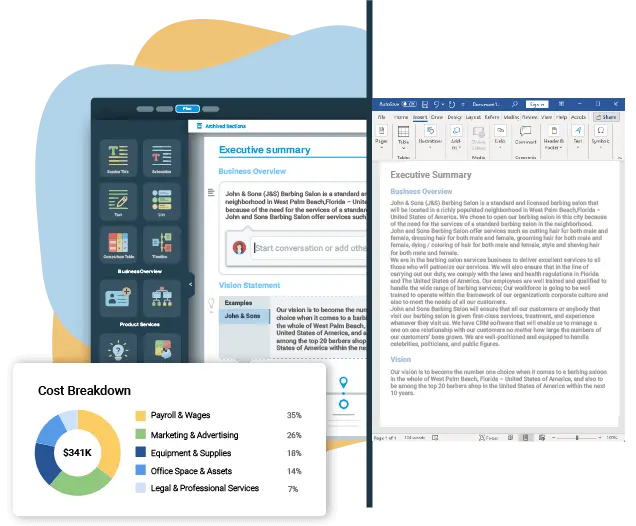
Are you a travel enthusiast and want to establish your own travel agency?
Well, if yes, then it’s an exhilarating journey of stepping into a world brimming with adventure and discovery.
But in the midst of this excitement, it’s necessary to lay the groundwork for a successful business out of a hobby. It demands a strategic roadmap – writing a proper travel agency business plan .
So, our travel agency business plan serves as the compass that directs you through all the intricacies of the industry and helps you pay attention to every detail of the business plan.
As you delve into this step-by-step guide, you can explore how to write your own business plan that sets the stage for sustainable growth and leaves a mark on potential investors or readers.
Without further ado; let’s dive into the art of crafting your travel agency business plan.
Key Takeaways
- Create a compelling executive summary for your travel agency’s identity, vision, mission statement, and core values.
- Showcase your business goals, market opportunities, and marketing plan to attract potential investors or partners.
- Highlight the range of travel services you’ll provide, including specialized offerings that place your agency ahead of competitors.
- Give valuable insights into everyday business operations, from booking management to customer service protocols.
- Provide a detailed financial plan to illustrate a clear understanding of your travel agency’s financial health and expected growth trajectory.
- Thoroughly analyze the industry and competitive landscape to uncover the latest trends and customer preferences.
- Utilize modern and cost-effective business plan software for writing and maintaining business plans.
Why do you need a travel agency business plan?
In reality, every established or emerging business requires a well-written business plan. It is not just a document; it’s a strategic blueprint, offering you a roadmap to make informed business decisions.So, starting your travel agency business greatly benefits from having a well-thought-out business plan like any other business.
Attracting Investors
Whether you’re looking to secure a loan or attract potential investors, a detailed business plan is truly helpful. It shows your agency’s capital cost & revenue potential and summarizes the profitability for angel investors.
Strategic Direction
An actionable plan provides a comprehensive view of your travel agency’s goals, offered services, and strategic steps you will take to achieve success. Also, it indicates a thorough understanding of your target audience and top competitors.
Risk Mitigation
Drafting a professional business plan serves as a foundation for a successful business and helps you identify potential risks & challenges in the market. Through careful planning, you can create effective strategies to overcome obstacles.
Operational Guidance
A well-crafted business plan offers an internal guide that ensures your team understands and aligns with the overarching business objectives, encouraging a cohesive and immersed work environment.
Now, let’s move forward to write a successful business plan for a travel agency.
How to write a business plan for a travel agency?
1. get a business plan template.
Before you start writing a travel agency business plan, it’s highly advisable to get a business plan template first!
It’s like having a valuable toolkit for your business planning endeavors. It not only streamlines the business plan writing but also ensures that you describe all the essential sections.
It offers a structured framework that helps you organize your thoughts effectively to draft a strategically sound business document according to your specific needs and preferences.
Beyond that, a quality business plan template lays the foundation for a comprehensive, professional business plan that highlights your business idea and vision to attract potential investors.
If you’re in search of a polished template, consider Upmetrics’ sample business plan template and ensure that you won’t overlook any essential points in your plan.

Free Business Plan Template
Download our free travel agency business plan template now and pave the way to success. Let’s turn your vision into an actionable strategy!
- Fill in the blanks – Outline
- Financial Tables
2. Draft an Executive Summary
An executive summary is the first and foremost section of any business plan. It offers a quick overview of your entire travel agency business plan.
If your first few pages are compelling enough, potential investors or loan officers will find the document intriguing and delve further into your plan.
Your executive summary should be clear, concise, and engaging if you’re looking for investors or loan sanctions, as it will grab their attention and make a strong impression.
To draft an effective summary, start with a concise description of your travel agency business, covering its name, concept, location, objectives, and unique aspects. Refer to the below example:
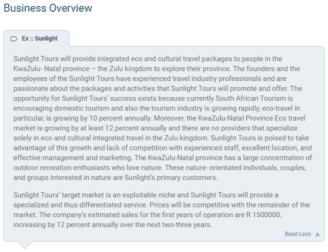
Next, explain what sets you apart and share insights about your service offerings, target market, and ideal customer base. Also, highlight marketing materials, current trends, and potential growth opportunities.
Lastly, give a summary of critical financial figures in terms of projected revenues, profits, and cash flows for the initial 3-5 years. From that, you can address funding needs and resources.
A business plan is a professional, living document that you should update regularly to reflect changes in your business.
3. Provide a Company Overview
Now, it’s time to draft a company overview section that provides a more detailed description of your travel agency.
It could be commercial travel agencies or online travel agencies. Share your agency’s founding story and the individuals behind its inception.
Try to explain your business legal structure(S-Corp, Limited Liability Company, or sole proprietorship), and describe the physical location of your travel agency.
Subsequently, highlight your vision and mission statement in this section to define your identity and core values. This serves as a brand story that your customers can connect to.
Take reference from the below example describing the mission statement of the travel agency:
- Internally we intend to create and nurture a healthy, exuberant, respectful, and enjoyable environment, in which our employees are fairly compensated and encouraged to respect the customer and the quality of the service we intend to provide.
- In addition, follow-up will be mandatory to ensure customer satisfaction and make any improvements as recommended by the customers in the future.
- We seek fair and responsible profit, enough to keep the company financially healthy for the short and long term and to fairly remunerate employees for their work and effort.
Discuss a little bit more about your business background information and how your travel agency works. Try to give answers for when you start your business and how you have set your office space.
In addition, highlight any milestones you have accomplished, such as the number of clients served, positive reviews, new travel agency openings, etc.
4. Conduct an Industry and Market Analysis
An industry and market analysis section is one of the most important ones in your travel agent business plan. It explores your specific niche within the industry and the geographic background where you wish to operate.
So, take some time to go further and find more accurate information, such as who are your target customers & top competitors, what are the current trends, and whether the tourism market is increasing or decreasing.
Market Size and Growth Potential
Conduct a complete market analysis to study the market size and explore growth potential areas for travel agencies. Assess the total revenue generated within the travel industry and identify the emerging trends.
Customer Analysis
Examine your target market in detail, including demographics, travel behaviors, and customer preferences. Understand your ideal clients and tailor your services to satisfy their specific needs.
Do thorough customer research and understand how your target audience plans and experiences trips. This can help better customize packages and offerings to meet your clients’ needs.
Want help writing a target customer segmentation for your travel agency business? Use Upmetrics AI writing assistant now and easily draft your business plan sections:
Competitor Analysis
As a travel agent, assemble a list of direct and indirect competitors in the travel agency industry. You can consider both classic brick-and-mortar travel agencies and online travel agencies.
Evaluate the strengths and weaknesses of each competitor, including service offerings, tour packages & quality, customer reviews, and marketing strategies.
Understanding these competitor factors will help you determine areas where your travel agency can differentiate itself and stand out in the competitive landscape.
Execute a SWOT analysis to find internal strengths & weaknesses of your travel company and external opportunities & threats in the travel industry.
Take reference from the below example showing a SWOT analysis for an XYZ travel agency business:
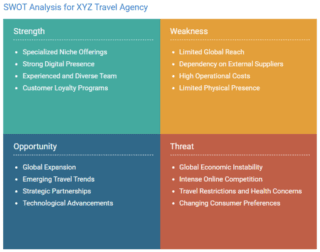
Based on SWOT analysis, formulate strategies to capitalize on opportunities and mitigate threats to outline competitive advantage.
Some extra tips for drafting this section of your travel company business plan:
- Use reputable sources to gather data, including industry reports, market research studies, and surveys.
- Be specific and provide detailed info wherever possible.
- Include charts and graphs to demonstrate your key points.
- Keep your target audience in mind while documenting the business plan.
5. Propose Your Service Offerings
Next, define the scope of your service offerings and clarify how they meet the diverse needs of your clients.
It must be informative, precise, and client-focused, as it is a detailed breakdown of different services that your travel company offers your customers.
As a travel agency, detail your service offerings, such as bookings, accommodations, vacation packages, international/domestic trips, custom-made business trips, or any cruise bookings.
Effectively disseminate your travel services with a detailed description of what it entails, service specifications, precise pricing plans, or any client reviews.
Here, you can take a reference from the below example to illustrate travel agency services:
1 . Guided Tours
Our guided tours are led by knowledgeable local guides who provide valuable insights into the culture and history of each destination.
Price: Varies by destination, starting at [$50] per person
Specifications: Group sizes are limited to 15 people, and tours typically last 2-3 hours.
2. Accommodation Booking
We offer a range of accommodation options, from luxury hotels to charming bed and breakfasts, ensuring our clients have a comfortable stay.
Price: Varies by location and accommodation type, starting at [$100] per night
Specifications: Accommodations are vetted for quality, safety, and comfort.
Not only that, describe any specialized services in your travel agency business plan template that set your travel agency apart so investors can quickly understand your business scope.
In addition to planning & booking, highlight additional services (trip consultations, wedding planning, speaking at industry events, providing training to other travel agents) and mention third-party partners(if any).
6. Outline a Sales and Marketing Plan
Comprehensive sales & marketing efforts can help your business grow by leaps and bounds. Carry out market analysis and develop clear sales and marketing strategies for reaching your target customers.
For travel agency businesses, explain your preliminary approach and promotion tactics to acquiring either local or international customers.
Also, discuss affordable/high-quality travel packages you provide, their prices, and hassle-free transactions at the point of sale. Here are some of the sales and marketing strategies for travel agencies:
Unique selling proposition
Emphasize the agency’s capability to offer personalized customer service, a variety of communication modes, and 24/7 customer support. Present exclusive access to unique destinations, experiences, and special perks.
Pricing Strategy
Implement a flexible and competitive pricing plan that caters to a diverse client base. It allows the agency to adapt to market dynamics, provide value to customers, and uphold a profitable business.
Take reference from the below example written using Upmetrics’ travel agency business plan template:
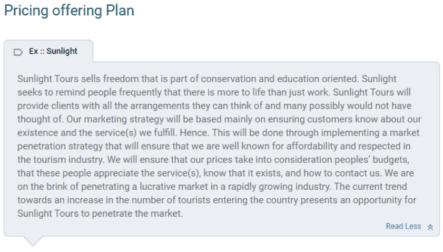
Offline strategies
Create visually appealing brochures and distribute print materials to local businesses, travel agencies, and strategic locations. Implement a referral program and try to provide discounts or exclusive festive offers.
Social Media Marketing
Utilize social media platforms(Facebook, Instagram, Twitter) to highlight travel packages, engage with the target audience, and build a community around travel enthusiasts.
Content Marketing
Create a content marketing strategy comprising blog posts, travel guides, and visually appealing content to encourage potential customers to consider your agency for their travel needs.
Collaborations
Partner with local businesses, hotels, and travel-related service providers to promote your service offerings. Attend travel fairs, trade shows, or community events to network with potential clients.
7. Introduce Your Team
The management team section offers an opportunity to showcase your strength as a travel agent. It should include a thorough plan for your travel agency’s key managers, employees, or sub-travel agents.
Mention their roles & responsibilities or relevant experience in the related fields or travel agency industry. Also, highlight their expertise that contributes to your agency’s success.
Try to break down overall payroll expenses, such as how much their compensation, commission split, base salary, or whether you will give any bonuses or benefits to your employees.
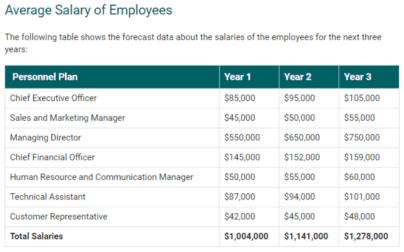
If you need to hire employees or a travel agent, emphasize how many individuals you will need and how much you will pay them.
This can provide brief details to the investors and help them understand what exactly you plan to staff your agency and pay your employees.
If applicable, you can also design an organizational chart for your travel agency. This can help you demonstrate who your key members are and what roles they serve in your travel agency.
8. Outline Business Operations
Now, it’s time to develop an in-depth look into the day-to-day functions of your travel agency. Paint a picture of seamless operations and ensure that your business runs smoothly.
Describe the entire operational cycle of the tour business, including staffing, how bookings are managed, customer service procedures, technology used, and safety measures for handling unforeseen circumstances.
Include the below subsections in your travel agent business plan operations section:
Highlight the number of employees required, and opening hours, and briefly outline the responsibilities of each team member and training programs. Refer to the below example written using Upmetrics AI assistant :
Customer Service Procedures
From pre-travel assistance to emergency response, prioritize customer satisfaction, efficient techniques, and effective client communication to ensure a positive and stress-free travel journey.
Equipment & Technology
Explain what kind of equipment & technology you will need to run your travel agency. Include a brief idea of how you will reach some travel agency milestones and look forward as your business grows.
You might consider below things:
- Office equipment(Telephone, fax, or scanner)
- Travel agency website
- Booking tools
- Itinerary builders
- Customer Relationship Management(CRM)
- Invoicing and payment processing tools
9. Prepare Financial Plan
Currently, you are in a business planning stage, but dedicating some time to putting together the most realistic financial projections is very crucial.
Having a well-structured and in-depth financial plan will help you show the tentative spending as well as the revenue forecasts and budgets if your travel company is seeking funding from investors.
In this section, you will need to make a few assumptions that will greatly affect the financial statements of your agency. Take a look at the below table to make important assumptions:
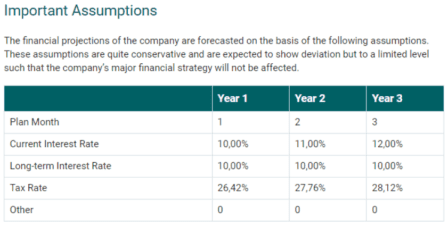
Mention all the below financial aspects in your travel agency business plan:
- Income statement (Profit and loss statement)
- Cash flow statement
- Balance sheet
- Sales forecast
- Break-even analysis
- Business ratios
- Investment strategies
- Exit strategy
From the above financial statements, you can identify the startup funding needs and evaluate the funding resources for your agency, such as bank loans, angel investors, crowdfunding, or personal savings.
Well, keeping a realistic financial report in your hand not only helps you demonstrate your agency’s fiscal health but also emphasizes its sustainability.
However, calculating all the financial elements from scratch can be overwhelming. But don’t worry; consider Upmetrics’ financial forecasting tool .
All you have to do is fill in all the details you have and let the tool calculate financial factors, and create visual reports for you. No manual data entry, placing Excel formulas, or designing graphs—nothing.
Here’s an example of a projected balance sheet for the next 3 years using Upmetrics:
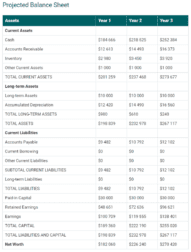
Download a travel agency business plan template
Need help writing your travel agency business plan from scratch? Well, here you go; download our free travel agency business plan template now and get started.
This modern, user-friendly business plan template is specifically designed for travel agencies. With a step-by-step guide and example, it helps you write a professional plan without missing any crucial steps.
Simply import data into your preferred editor and start writing!
The Quickest Way to turn a Business Idea into a Business Plan
Fill-in-the-blanks and automatic financials make it easy.
Start preparing your business plan with AI
Finally! With the help of our sample business plan template, you know how to write a travel agency business plan. So, you are one step closer to starting your travel agency business confidently- pretty exciting, right?
But you know what else is more exciting? Your business planning process can be even smoother than this. Yes, you heard it right; it’s possible with the help of Upmetrics AI Assistant.
So, don’t wait, and start planning now !
Related Posts
RV Park Business Plan
Airline Business Plan
Business Plan Writing Guide
Successful Business Plan Examples
Car Rental Business Plan
Airbnb Business Plan
Frequently asked questions, where can i find a free travel agency business plan template.
There are various online platforms where you can find free travel agency business plan templates. Consider a reputable business planning website—Upmetrics, which offers free templates to help you get started.
What Should Be Included in a Travel Agency Business Plan?
A comprehensive travel agency business plan should include below key components:
- Executive summary
- Company overview
- Market research and industry analysis
- Services offered
- Sales and marketing strategy
- Management team
- Operational plan
- Financial plan
How Often Should I Update My Travel Agency Business Plan?
It is advised to regularly update your travel agency business plan to reflect changes in the market, industry trends, and business growth. Review and update your plan at least once a year or more often if there are significant changes in your business.
What Financial Projections Are Necessary for a Travel Agency Business Plan?
Make sure that you include the following financial factors in your travel agency business plan:
- Startup costs
- Revenue projections
- income statement (Profit and loss statement)
- Projected cash flow
About the Author
Upmetrics Team
Upmetrics is the #1 business planning software that helps entrepreneurs and business owners create investment-ready business plans using AI. We regularly share business planning insights on our blog. Check out the Upmetrics blog for such interesting reads. Read more
Plan your business in the shortest time possible
No Risk – Cancel at Any Time – 15 Day Money Back Guarantee
Popular Templates

Create a great Business Plan with great price.
- 400+ Business plan templates & examples
- AI Assistance & step by step guidance
- 4.8 Star rating on Trustpilot
Streamline your business planning process with Upmetrics .


How to Create a Business Plan for Your Tour or Travel Company

Do you have the next great tour business or travel company idea, but don’t know how to turn it into reality? You’ve found your niche and even come up with the best tour company name ever, but who do you tell and how do you get started?
Table of Contents
Why your tour company needs a business plan.
We’ve previously covered topics on how to build your business, but one beneficial, even crucial, practice before you start is to write up a small business plan, one that compiles all the important aspects of your brand in a single 15-20 page document. Having a simple tourism business plan will help you plan for the future and even discover new things about your brand.
Whether you’re a young entrepreneur building a tour startup in search of investors, or you’re an established tour operator looking to better understand your business and take it to the next level, a tour operator business plan can help guide you in the right direction.
The Benefits of a Business Plan
As mentioned above, a tour company business plan is a document that outlines all the important aspects of your tour business. From your company goals and objectives, to your team members, and even your financial statements, a business plan is an effective tool for analyzing the ins and outs of your business.

It is the ultimate document used to convince investors and lenders to support your tour company. If you’re not looking for investors, writing a simple business plan for your tour business is still useful practice to align the leaders in your company, discover any shortcomings you might have missed, and plan for future growth.
How to Create a Tourism Business Plan
Now that you understand why having a small business plan is important, you’re probably wondering how to write one. You can use a business plan template, but it’s good to know why you’re including the information it asks for. It’s also acceptable to cater the content of your business plan to suit your unique company, but there are certain sections that investors expect to see, making them beneficial for you to include.
Here is what you need to include in your company’s business plan:
Executive Summary
One of the most important sections of your business plan will be your executive summary, which serves as a high-level overview of your business, providing highlights of the fundamentals of your brand.
You’ll notice that most, if not all, of the topics covered within your executive summary will have their own dedicated section later on in your business plan. Because the executive summary is typically limited to a single page, leave the nitty-gritty details for their respective sections and use the executive summary as a way to simply introduce the topics to your reader.
Executive summary topics:
- What is your business and what does it do? Do you host walking tours or provide bicycle rentals? Are you a tour guide or do you run a themed hotel experience? Give the reader a clear understanding of your business concept.
- What are your business goals and where do you envision your company in the future? How do you want to see your business grow?
- What makes your business different from your competitors? Whether you’re renting out a specific product like Segways or providing a service like guided tours, discuss what sets you apart from (and makes you better than) similar businesses in your industry.
- Who is your target audience? Who are you selling to and why are they interested?
- What is your marketing strategy? How do you plan to connect with and convert your customers?
- What is your current financial state? What is your projected financial state?
- What is the purpose of your business plan? Are you looking to secure investors and/or lenders? If so, how much are you asking for? You won’t need to discuss this if your business plan is strictly for your own planning purposes.
- Who is on your team, what are their job titles, and what do they do?
Again, like your business plan as a whole, not all of the topics listed above may be applicable to your business or your specific needs, so include only what you see fit.
Company Overview
Your company overview should give your reader a detailed understanding of who you are and what you do. This includes technical topics like your business description, structure, and model, but should also cover the heart and soul of your company. That is, not only what you do, but why you do it. Developing your brand story is an important step to branding in the travel and tourism industry .

What is it about running a bungee jumping business, wine tasting tour, or spelunking course that inspires you? What is your company’s mission, vision, purpose, and USP (unique selling proposition)? What are your business goals and objectives, both short-term and long-term? Defining these aspects of your business helps readers, whether investors or your own employees, connect with your business at a deeper level.
Market Analysis
Another important section to include in your business plan for your tour company is a detailed market analysis. Even if you’re creating your business plan for internal use only, conducting market analysis and research is an excellent way to gauge your position within your industry, identify areas of concern, and create an effective marketing strategy using the 7 Ps of Travel and Tourism Marketing .

Things to consider in your market analysis include your target market and demographic, whether your marketing strategy is aligned with your target market, where you want to position yourself in the industry in relation to your competitors, and where you have room to improve.
Try conducting a SWOT analysis for your tour business to explore your:
- Strengths – what do you do well?
- Weaknesses – what could you do better?
- Opportunities – are there gaps in your industry that you can take advantage of?
- Threats – what external factors affect your chance of success?
Team Summary
Use your team summary section to outline the leaders and key players in your tour company. An organizational chart works well to display this information and will usually explore members of management and other key personnel, their job titles, and their roles and responsibilities. Be sure to address how each person plays/will play an integral role in the success of your tour business or travel company.

Even if your business is very small or you run a sole proprietorship, it’s still worth including a team summary section so that potential investors can get to know who they’re investing in. A team summary adds a human element to your business plan and can help build your readers’ confidence by showing them that they can trust the leaders (even if it’s just you) to bring the company to success.
Financial Plan
Discuss your finances. What is your current financial state, what is your future financial projection, and how do you plan on getting there? If you’re looking for an investment, how much do you need? Include relevant documents, paperwork, statements, calculations, etc. to back up the numbers you’re sharing.
Marketing Plan
Needless to say, tour marketing is one of the most important aspects of your tour business.
Your business plan should have a detailed marketing strategy and promotional tactics, including pricing strategy, advertising channels, and innovative tactics. It should also leverage social media and other tourism-related technology to reach your target market effectively.
Your Business Plan Can Set You Up For Success
Investing the time up front to create a simple business plan for your tour company is worth the effort, and is crucial to becoming a successful tour operator. Going into anything without a plan can be risky, and starting a tour business is no different.
Once you know how to write a business plan and understand the main components that make one effective, you’ll have an invaluable tool for securing investors and planning your company’s growth in the competitive tourism and travel industry. There’s really no better time than now, so go out there, write a killer business plan, and start the tour business of your dreams .

Written By | Edward Nieh
Edward Nieh is a freelance writer and copy editor working across multiple mediums for clients from various industries. He has a degree in creative writing with a focus on screenwriting for feature films.
Previous Article How Tourism's Recovery is Empowering Women Worldwide
Next Article 8 Revenue-Generating Tourism Rental Ideas for 2024 (Updated)
Related Posts

Articles , Increase Online Bookings , Tourism Trends
Set-jetting, forest bathing, and hush trips: 20 innovative tourism business ideas and trends for 2023.
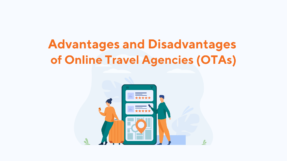
Articles , Increase Online Bookings , Tourism Best Practices
Advantages and disadvantages of online travel agencies (otas).
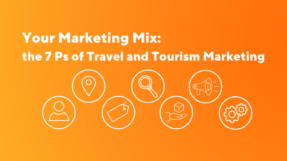
Articles , Increase Online Bookings , Marketing Strategies
Your marketing mix: the 7 ps of travel and tourism marketing, search the blog.
- All Categories
- Tourism Best Practices
Most Popular Articles
- Set-jetting, Forest Bathing, and Hush Trips: 20 Innovative Tourism Business Ideas and Trends for 2023 133 views
- Your Marketing Mix: the 7 Ps of Travel and Tourism Marketing 31 views
- Advantages and Disadvantages of Online Travel Agencies (OTAs) 30 views
- How to Create and Promote Amazing Tour Packages 20 views
- How to Create a Business Plan for Your Tour or Travel Company 16 views
I have read and agree to the Rezgo Privacy Policy
GET STARTED
Sign-up for a free demo.
Lorem ipsum dolor sit amet, consectetur adipiscing elit, sed do eiusmo tempor incididunt ut labore et dolore magna aliqua.
Schedule A Demo

How To Start A Tourism Business: Actionable Insights For 2021 & Beyond
- Business Management
Are you researching how to start a tourism business?
Since COVID, there are considerations that didn’t exist previously for travel businesses looking to enter the market. For example, you will have to put careful thought into how you approach safety, insurance, branding, and marketing for your company.
To take some of the unknown out of the process, we have gathered some helpful insights for you. As with any start-up, there are many moving parts to bring together before you reach the point of lift-off.
Overall, you need to have a clear strategy, a good business idea, and be willing to put in the work.

How To Start A Tourism Business: Step-By-Step Instructions
1. formulate a plan for your business.
First, you need to develop a clear business plan .
Before setting the entity up, you’ll need a concise vision and understanding of what the business will look like and the direction it is going in. Here are some important aspects to cover:
Consider Your Unique Selling Proposition (USP)
Why will people sign-up with your company? What makes you great and stands you out from the competition? Is there something that you are going to do differently that travelers should know about?
Consider the answers to these questions and proudly claim them in your marketing materials to attract your ideal customers.
Mull Over Your Target Audience
You have a passion that is driving you to start a travel business.
It's this passion that is going to shine through and attract your ideal clients. Walk in knowing precisely who these clients are and what drives them to you, in particular.
From there, you can work on creating marketing messaging to reach them and draw them to your company.
Design Your Tours For Post COVID-19 Travel

As we emerge from the pandemic, safety while traveling will be top of mind for your clients.
Reconnection is going to be another aspect that travelers will be chasing. After months apart, there is lost time with family and friends to make up for.
When designing your tours, keep these two factors top of mind. Travelers will want reassurance that they can travel with peace of mind while having a great experience with their loved ones. As a travel company or tour operator, they will be looking to your expertise to guide them through the unknown terrain of traveling post-COVID.
Work Out Details For The Day-To-Day Operations
It’s essential to figure out the small print around how you will operate day-to-day.
Establish things like your operating hours, who you need to appoint to your team, and where you will work from. Also, consider your asset and equipment requirements and when and how you plan to go to market.
Estimate Your Costs
Naturally, you want your operation to be viable so that you can make a living off doing what you love. To get an idea of where you will be money-wise, you need to draw up a financial plan.

Work out exactly what your business costs will be. Keep in mind that you might have start-up and day-to-day running expenses, as well as costs related to suppliers and vendors once you're operating.
With this information, you can establish how much you need to charge clients for your service or offering.
Take a minute to check whether this is relative to what your competitors charge and suited to the market you are targeting?
As you will likely have start-up costs initially, you may not make a profit right away. See if you can put a number on how many tours or how much revenue it will take to get you to this point. Make a note of this and allow a little wiggle room for the unexpected.
2. Sort Out The Legal Stuff
The next big step in how to start a tourism business is to set up your operation to trade legally.

Register Your Business
First, you need to pin down a name and register your company.
Some of the different legal business structures include sole proprietors, partnerships, limited liability companies (LLC), and corporations. Select a suitable one based on your expected annual turnover, whether you are operating alone or with a partner, and whether you wish to carry liability personally.
Open A Bank Account

Open up a dedicated company bank account so that you can keep your personal and business finances separate.
Complete Your Tax Registration
The next step is to register your business for state and federal tax.
The type of taxes and date you’re liable to pay will depend on what legal entity you operate as. Business tax returns can get pretty complicated. So, it’s a good idea to appoint a professional tax practitioner who can ensure that you are registered correctly and prepare your returns.
Get Liability Insurance
All companies face unknown risks. To operate legally, lawfully, and safely, you need to get liability insurance at a minimum. This will protect you in the case a guest or employee has an accident.
Other insurance types to look into include Workman’s Compensation, Accounts Receivable, Property, and Errors and Omissions insurance.
Apply For Your Local Permits and Licenses
Depending on what kind of company you are starting, you may need local permits or licenses to operate, for example, a tour operator license.
Check in with your local tourism body or nearest government office to see what the requirements are.
Note that these can differ from state to state, so if you work in a state other than the one you are registered in, you may need to factor this into the equation too.

3. Develop Your Branding and Marketing
When researching how to start a tourism business, you’ll hear how critical it is to establish a brand image. It should represent who you are and speak to your audience.
On top of that, you need a clear marketing strategy to grow your customer base and get your brand online. Some of the first things to focus on are to:
- Put up a website
- Sign up to a bookings and payment platform provider, like WeTravel
- Design a company logo
- Start an online blog
- Set up social media accounts
- Claim your Google My Business profile
- Create profiles on review platforms
- Sign up with OTAs, travel agents, or vendor partners
- List on local directories
From there, it helps to know how to really sell your tours . Also, take a look at how your competitors market and sell their products. You can use the information to do even better.
4. Get The Right Tools, Technology, Team, and Equipment
Before you launch your business, be fully prepared with everything you need on the ground and to make things happen behind the scenes.

We’ve just mentioned some of the most important digital and technological considerations, including having a website, payment platform, social media accounts, and more.
Of course, you need computers, phones, and to furnish an office. You’ll need software and apps, like social media management or remote working tools.
You might also require equipment to host your tours or carry out your service, such as vehicles, radios, bicycles, and so on.
The last thing here is to hire a top-notch team. The people who work for you make or break your client experience, so choose them wisely.
5. Square Up Your Accounting
Finally, put your accounting systems in place. Keeping track of finances is vital to your business’s success, so having a formal process from the get-go is a must.
You’re Now Ready To Launch
From your research on how to start a tourism business, you'll know that it's no easy feat. But, after running through the points above, you’re now ready to launch and set up for success. Congratulations and good luck; let the real work begin.
Are you interested in finding out more about WeTravel’s booking and payment platform for your business? Watch the short clip below, or get in touch with us for a demo .
New resources, straight to your inbox
We’re committed to your privacy. WeTravel uses the information you provide to us to contact you about our relevant content, products, and services. You may unsubscribe at any time.
About the author

Related Posts
Top 10 features the best tour booking systems should have, easiest ways to accept online payments for your mba trip, unlocking seamless travel payment solutions: a comprehensive guide and common mistakes to avoid.
Step-by-step guide to creating a tour operator business plan [template included]

By Kevin Tjoe — 13 Jan 2022
Business plan Business set-up
Updated July 2023 – Ready to take the plunge and launch that tour company or adventure travel business you’ve been envisioning? Before you start welcoming guests, the best first step is always to build a detailed business plan.
A tour operator business plan is more than just a formality; it is the compass that will navigate your business’s journey. A well-structured business plan for a tour operator provides the framework for transforming your vision into a thriving and sustainable business. It will help you clarify your goals, streamline your operations, and make informed decisions.
Let’s explore the immense value of a clear tour operator business plan as well as the most important elements to consider in this comprehensive document.
Why create a business plan?
Crafting a business plan allows you to lay the groundwork for your tour operator business effectively. Whether you plan to help travelers make travel plans or to provide amazing tourism experiences, your business plan will serve a couple of key purposes:
- You can hit the ground running with a plan in place, and goals to work towards in the long term.
- You’ll have a quality business case to use if you’re applying for loans or grants.
- You can point your start-up resources, such as cash flow and staff, where they’ll provide the most benefit. This is particularly important if you’re starting with a tight budget.
- You’ll also have a ‘roadmap’ to help you navigate through the inevitable challenges, obstacles, and surprises in business!
Key elements of a tour operator business plan
In order to understand how to set up a tour operator business, you’ll first need to learn the key elements of a tour operator business plan.

1. Business overview
This section of your tour operator/ tour agency business plan provides a holistic snapshot of your company, offering readers a clear understanding of your business’s identity. Ideally, it should include the following:
- Business Name: Your business name should resonate with your target audience, conveying the essence of your offerings and the unique experiences you promise to deliver. Ensure it is memorable, evocative, and future-proof.
- Location: Detail the physical location of your tour operator business. Your location can influence your target market and the types of tours you can offer. Be specific about your base of operations and, if applicable, mention any satellite offices or future expansion plans.
- History: Describe the story behind your tour company’s inception. Share the passion and inspiration that sparked your journey into the travel and tourism industry, and ensure that it aligns with your brand values.
- Ownership Structure: Clarify the legal structure of your tour operator business. Are you a sole proprietorship, a partnership, a limited liability company, or a corporation? Describe the ownership arrangement and highlight the key stakeholders involved in the venture.
- Assets and Debts: Provide an overview of your company’s assets and debts. This includes tangible assets such as vehicles, equipment, and office space, as well as intangible assets like intellectual property and brand equity. If applicable, disclose any outstanding debts or financial obligations that may impact your business’s financial health and ability to grow.
2. Market analysis
Start by defining your target market. Are you catering to adventure-seeking travelers, history enthusiasts, or nature lovers? Consider their demographics, interests, and spending behavior. Research industry trends and analyze competitors to gain insights into their strengths and weaknesses. This will help you identify opportunities and potential gaps in the market that your business can fill.
In addition, study the external factors that could impact your business, such as seasonal fluctuations, economic conditions, and any regulatory requirements specific to the tourism industry.
3. Tour offerings
Crafting compelling and diverse tour offerings is at the heart of your tour operator business. Consider the unique experiences and attractions your target market seeks. Develop a range of tour packages that cater to different preferences and budget levels.

Your tours should not only showcase the best of the destination but also provide memorable and immersive experiences. Whether it’s organizing guided city tours, thrilling adventure expeditions, or cultural explorations, your offerings should reflect your passion for travel and your commitment to creating unforgettable memories for your customers.
Use your tour operator/ tour agency business plan to emphasize what sets your tours apart from the competition. Whether it’s exclusive access to hidden gems, knowledgeable guides, or sustainable practices, highlight the value that customers will gain from choosing your services.
4. Marketing strategy
Successful businesses have strong brands, so your business plan should set out branding guidelines . Consider the following key elements when coming up with a strategy that will guide how you should start marketing your tour business:
- Branding Guidelines: Outline your branding guidelines, including your brand’s visual identity, mission statement, core values, and brand voice. Emphasize consistency across all touchpoints, from your website and social media platforms to your tour brochures and customer interactions.
- Advertising Channels: Identify the advertising channels that best align with your target audience and budget. Consider a mix of online and offline channels to reach potential customers effectively. Online channels may include pay-per-click (PPC) advertising, display ads, and sponsored content on travel websites. Offline channels could involve partnering with local travel agencies, and tourism boards, or participating in travel trade shows and events.
- Social Media Channels: Social media is a powerful tool for connecting with travelers and building a loyal community around your brand. Engage users with captivating visual content, compelling storytelling, and interactive posts that evoke a sense of wanderlust. Utilize platforms like Instagram, Facebook, Twitter, and YouTube to share breathtaking photos, behind-the-scenes glimpses, and testimonials from satisfied customers.
- Customer Reviews and Testimonials: Encourage satisfied customers to share their stories and feedback on platforms like Google Reviews, TripAdvisor, and your website. Positive reviews build credibility and serve as powerful social proof, enticing potential travelers to choose your tours with confidence. Respond promptly and graciously to all reviews, demonstrating your commitment to customer satisfaction.

- Content Marketing: Create valuable and informative content that educates travelers about your destination, highlights unique aspects of your tours, and offers travel tips and insights. Utilize blog posts, videos, podcasts, and downloadable guides to establish your tour operator business as a trusted authority in the travel industry.
- Partnerships and Collaborations: Consider strategic partnerships with complementary businesses in the travel and hospitality industry. Collaborate with local hotels, restaurants, and activity providers to create enticing package deals that appeal to travelers seeking a holistic experience. This is especially important if you are considering creating an international travel agency business plan, as collaborations can help broaden your reach.
5. Operations and management
The operations and management section of your tour operator business plan delves into the practical aspects that keep your business running smoothly and efficiently. This nitty-gritty exploration ensures that every aspect of your tour company is well-organized, legally compliant, and focused on delivering exceptional experiences to your customers.
Here are the key components to include in this section:
- Business and Legal Structure: Clearly outline your chosen business and legal structure. Whether you are operating as a sole proprietorship, a partnership, a limited liability company (LLC), or a corporation, this information provides a framework for your business’s governance and responsibilities.
- Risk Management and Workplace Health & Safety Plans: As a tour operator, the safety and well-being of your guests are paramount. Detail your risk management procedures and workplace health & safety plans to mitigate potential hazards and ensure a secure experience for travelers. Assess the risks associated with different tours and activities, develop contingency plans, and implement safety protocols that align with industry best practices.
- Terms and Conditions: Craft comprehensive and transparent terms and conditions for your tour offerings. Clearly communicate cancellation policies, refund procedures, and any limitations or requirements for participants.
- Staff Scheduling and Training: Outline your staff scheduling procedures to ensure smooth operations and optimal customer service. Consider investing in staff training programs that equip your team with the knowledge and skills to offer insightful commentary, excellent customer care, and handle unforeseen situations professionally. Furthermore, you can optimize the utilization of Full-Time Equivalent (FTE) tool to help you gauge the potential productivity of your staff and business.
- Reservation System: In the digital age, a robust and secure reservation system like Rezdy is vital for streamlining your booking process for both you and your customers. Invest in a reliable booking software that allows real-time availability updates, secure payment processing, and automated customer confirmations.

- Distribution Channels and Partnerships: Consider the distribution channels that will help grow your bookings and expand your market reach. Will you collaborate with online travel agencies (OTAs) or travel agents to promote your tours? Explore partnerships with local businesses, such as hotels and restaurants, to create enticing package deals.
- Customer Relationship Management (CRM): A well-organized CRM system enables you to build lasting relationships with your customers. Implement CRM software to keep track of customer interactions, preferences, and feedback. Personalize your marketing efforts and start building customer loyalty through targeted promotions and personalized offers.
6. Financial plan
The financial plan is a key component of your tour operator business plan. It outlines your revenue streams, costs, and projected financial performance over time. A well-structured financial plan demonstrates the viability of your business and helps you secure funding if needed.
Start by estimating your startup costs, including equipment, licenses, marketing, and initial staff training. Calculate the expected cash flow, factoring in the seasonality of the tourism industry. Identify the pricing strategy for your tours, ensuring that it covers your expenses while remaining competitive in the market.
Create financial projections for at least the first three to five years, considering both conservative and optimistic scenarios. This will enable you to anticipate potential challenges and make informed decisions that will help you with growing your tour business.
Remember to regularly review and update your financial plan as your business progresses. Monitoring actual financial performance against projections will help you make timely adjustments and stay on track towards achieving your business goals.
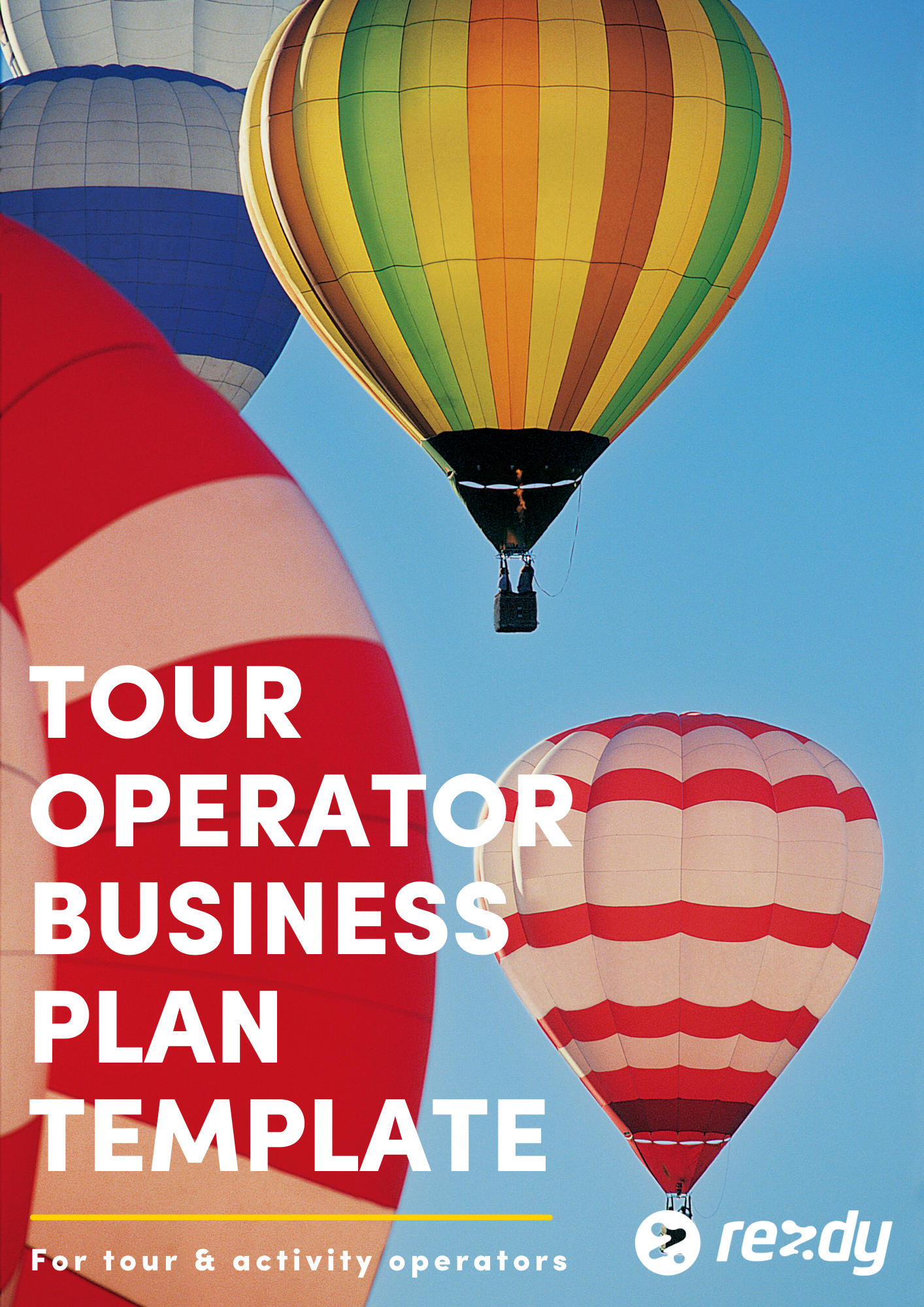
Ready to start building your business plan as a tour operator?
Download the free all-in-one checklist for easy reference.
Getting your tour business off the ground
Now that you have an effective business plan in place, it’s important to ensure your business has the right software.
Online booking software for tour operators like Rezdy is designed to equip your business for success. It includes multiple features integrated into the system, which allows you to reduce your overall admin duties. Some of these tools include real-time availability to avoid double bookings, automatic customer updates and reminders, and secure payment processes.
Furthermore, Rezdy also offers a channel manager platform that connects your business to thousands of resellers instantly. Joining Rezdy Marketplace is as simple as listing your products and setting your commission rates. From there, you can let resellers on the platform promote and sell your services to their customers.
Set your business up for success with Rezdy
Set your business up for success with a FREE 21-day trial or alternatively, book a demo to learn more about Rezdy and our products!
If you enjoyed this article then make sure to follow the Rezdy blog . There are a lot of marketing tools and tour operator tips designed with businesses like yours in mind.
Enjoy a 21-day free trial to take a look around and see if we are a good fit for your business.
No obligations, no catches, no limits, nada
Business Operations

How to create a Google Business Profile for tour operators

How to set up an online booking system for tour businesses

7 tips to fostering diversity & inclusion in your tour and activity business
How to create a tour operator business plan in 8 steps
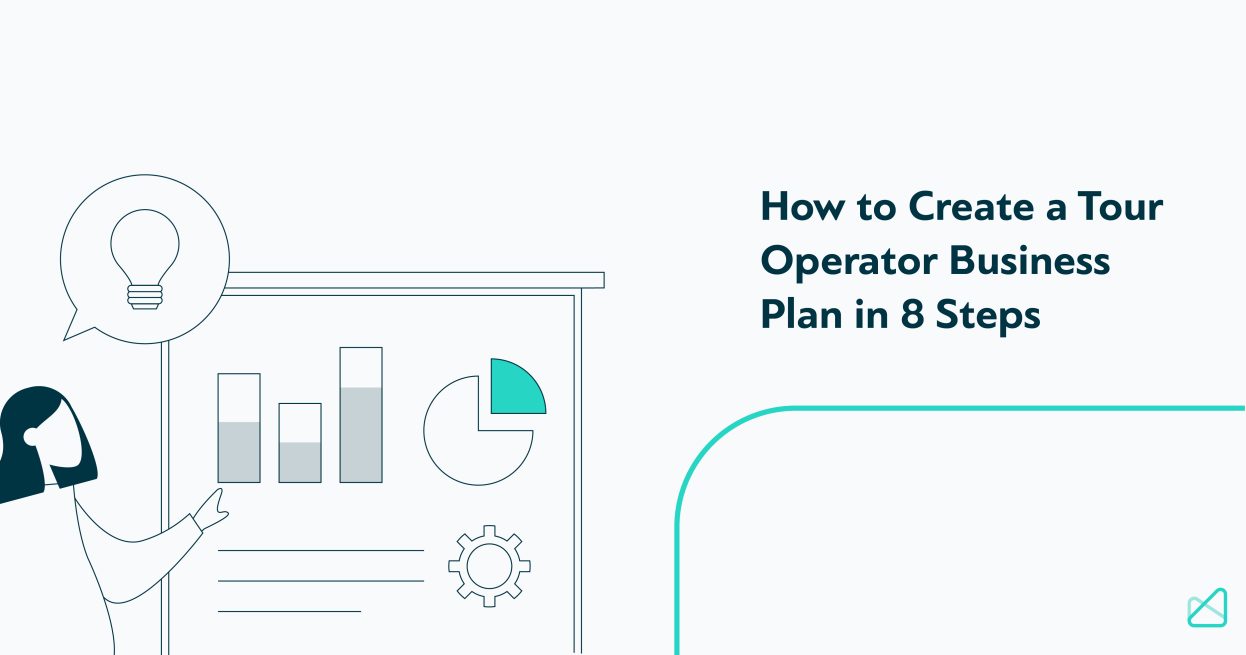
Preparing to Write a Business Plan
Tour operator business plan template, tips and tricks for a strong tour operator business plan.
Wondering how to turn your tour operator idea into a real business? The first step to launching a startup and getting investors onboard is to develop a formal proposal called a business plan . Whether you want to start a travel agency, a walking tour company, or an adventure travel business, you will use a business plan to communicate exactly how you plan to make your idea come to life.
Creating a tourism business plan might sound daunting; in this article, we’ll show you how to do one and offer lots of advice for first-time founders. You’ll be able to use this article as a tour operator business plan template to write your own sample business plan (as an exercise) or to create the real thing.
To more clearly illustrate how to create a tour operator business plan, we’ll use a sample business as we go through each section. Our sample business is a small tour operator startup that specializes in ecotourism in Thailand.
Before you start to create your official business plan, it can be helpful to think through several aspects of your business so that you are fully prepared to address each topic in the business plan template. One excellent preparation exercise is to complete a Business Model Canvas for your company.
The Business Model Canvas encourages you to think critically about your customers, cost structure, revenue streams, marketing strategy, and more. It’s the perfect warm-up for your business plan because you’ll incorporate your Business Model Canvas notes into the actual business plan document. We recommend that you do this exercise with your co-founders, if you have any, and with a whiteboard – you’ll probably make lots of changes as you go!
You can find a printable Business Model Canvas template here .
Your tour operator business plan should contain at least seven sections: an executive summary, a company overview, a description of your services, an analysis of your market, an implementation plan, a team summary, and a financial plan. You might have one or more appendices at the end, if you have additional relevant information to include. The finished product should be formatted nicely and incorporate your company’s logo and branding.
Executive Summary
As the first component of your business plan, the executive summary is arguably the most important section. If you’re pitching your idea to investors, they’re likely very busy people, so you want to grab their attention from the beginning. The executive summary should contain a concise outline of your tour operator company’s objectives and goals, your mission and/or vision statements , your key success factors, and a clear description of your value proposition.
Company Overview
Think of this section as what you would post on the “About” section of your tour operator company’s website. The company overview should explain who your company’s key leaders are, how and when the business started, what the ownership structure looks like (if you have investors, for example), where your office is located, and an outline of your current assets and debts. If you’re in the early stages of your business, this section might be quite short.
Operations Plan
The operations plan is where you describe exactly what your company will offer. What kinds of tours will you sell? Where exactly will you operate? This is the type of information you would list on your website for potential customers or guests to read – but without too much of a sales pitch.
In this section, it can also be helpful to include a description of the full “ life cycle ” of your business. What happens before, during, and after a tour? What steps does the guest complete, and what happens behind the scenes at your company’s office?
Thinking about our Thai ecotourism company, we might illustrate how someone could book a tour perhaps six months in advance on our website. Between booking and arrival, we coordinate accommodation, meals, and transportation with partner providers. When the tour concludes, we offer transportation back to the airport and follow up with a special offer to book another tour with us at a discount.
Market Analysis
This section explores your specific niche within the tourism industry and the geographic location(s) where you plan to operate. Who are your target clients or guests? Who are your main competitors? What trends exist in this facet of the industry? Is the amount of visitors to your location increasing or decreasing?
Try to include statistics from reputable sources whenever you can. Destination marketing organizations, tourism bureaus, and air traffic data, just to name a few, can provide valuable insight and add credibility. This section should leave no stone unturned so that your reader can truly understand your market conditions.
In our ecotourism business in Thailand, for example, we would include information about travel trends in Thailand (like the most popular feeder markets), new air routes, economic trends, the number of new hotels being built, etc. We would also explore the ecotourism market; are more people choosing eco-friendly travel options today compared to five years ago? What companies are the current ecotourism market leaders globally and in Thailand?
Implementation
Now that you’ve explained your business idea and described the market in which you plan to operate, it’s time to outline exactly how you will bring your tour operator business to life. This section should include a SWOT analysis , details about your marketing and pricing strategies, and a sales projection.
In the SWOT analysis , you will explore your company’s strengths, weaknesses, opportunities, and threats. What does your company offer that nobody else in the market does? What are some potential challenges that you will need to face? Using our ecotourism company example, a threat could be natural disasters – if there are floods or mudslides, our business cannot operate. On the other hand, an opportunity is that more people are interested in eco-friendly travel options.
Your marketing and pricing strategies should be very specific. How will customers find your company? Which online channels will you use? Will you work through travel agents or directly with your customers?
Your pricing strategy should include the exact rates you plan to charge for at least a year in advance. For example, our ecotourism company in Thailand might charge $699 for a package during low season, $899 during high season, and $999 over holiday periods, with rates increasing 5% each year.
We might also offer a 10% discount for advance purchase bookings made at least 6 months in advance and charge a 50% cancellation fee for any reservations cancelled within 3 months of the tour departure date. Based on your pricing strategy, you can create a sales projection that will estimate your company’s sales performance, preferably over the next three years.
Team Summary
After your reader understands what your tour operator business will do, they’ll wonder who is going to make it happen. And if you’re planning to launch a full-fledged tour operator business, you’re probably not going at it alone. The Team Summary section should include a thorough plan for your company’s organizational structure, key leaders, employees, and training processes.
Do you already have a management team in place, or will you need to hire additional leaders? How many employees will you need, and how much will you pay them? And how will you train and develop your employees? The Team Summary should answer all of these questions and provide enough information for potential investors to understand exactly how you plan to staff your business, pay your employees, and ensure all team members are trained properly.
Financial Plan
The financial plan is extremely important to potential investors because they will want to maximize the return on their investment. Your financial plan is essentially a projection of your revenue streams and cost structure for your company’s first five or so years of operation. It will include not only revenue from ticket sales and costs from employee salaries, but also details like tour-operator software costs, insurance, taxes, marketing spend, depreciation of assets, interest on loans, and more.
If you don’t have a finance background yourself, it may be helpful to seek assistance from an accountant or someone who knows the ins and outs of financial modeling.
Additional Information
In an appendix, you can include supporting information or statistics that may be helpful for potential investors, but not essential to your business plan. For instance, you could include a full report on air traffic trends that you used in your Market Analysis section.
Writing a business plan is certainly not an easy task. It’s time consuming and requires a lot of thought, but a well written business plan can lead to significant growth for your company. As you complete your business plan, keep these pieces of advice in mind:
- Conduct thorough research on your market . When you pitch your company to investors, you want to be seen as an expert, so learn as much as you can about your competitors and market trends.
- Simplify your words and descriptions whenever possible . A business plan is not the place to wow your reader with flowery language – instead, you want your reader to easily grasp your value proposition. Think about writing so that a fifth-grader can understand it. The last thing you want is for your reader to be confused about what your company actually does.
- Don’t be afraid to make changes . As you work on your business plan, you might discover that some aspects of your business need to be adjusted for the greater good of the company. After all, the companies that are the most adaptable are the ones that survive!
- Get a second opinion (or a third or a fourth). A good test of your business plan’s readability and clarity is to let someone outside your industry read it, like a family member or friend. If they have a lot of questions, you might need to adjust your descriptions or more clearly explain your plans.
- Proofread ! Your business plan is a reflection of your company’s values. If your formatting is sloppy and your text is full of typos, your reader might question whether you have the attention to detail necessary to run a successful business.
Now that you have all the tools to create a great tour operator business plan, it’s time to get to work!
Subscribe to our newsletter
Yay you are now subscribed to our newsletter.
Adrienne Fors is the founder of Strategic Stays, a consultancy specializing in tech solutions and copywriting for short-term rental businesses and boutique hotels. She was previously a Market Manager at Expedia, and she graduated from the School of Hotel Administration at Cornell University. Adrienne is originally from Minneapolis, Minnesota and enjoys traveling and playing tennis.
Mize is the leading hotel booking optimization solution in the world. With over 170 partners using our fintech products, Mize creates new extra profit for the hotel booking industry using its fully automated proprietary technology and has generated hundreds of millions of dollars in revenue across its suite of products for its partners. Mize was founded in 2016 with its headquarters in Tel Aviv and offices worldwide.
Related Posts
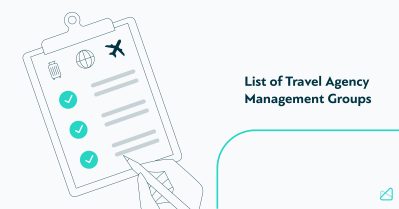
List of 32 travel agency management groups
6 min. Whether you are thinking of moving into the travel industry or you already own a business in this sector, the concept of travel agency management groups is a task worthy of analysis and study. Defining an effective business model for your retail travel agency is one of the key factors in optimizing sales […]
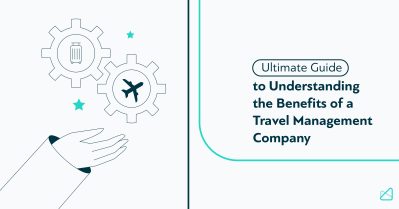
Ultimate Guide to Understanding the Benefits of a Travel Management Company
12 min. Managing and operating modern businesses often encompasses corporate travel. However, managing business travel is complex, especially with limited experience and resources. You must ensure that everything goes smoothly for the travelers while staying on top of the logistics and expenses. That’s why many organizations decide to outsource their travel management to a dependable […]
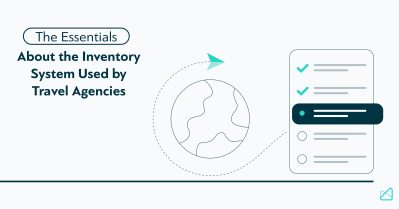
The Essentials About the Inventory System Used by Travel Agencies
11 min. While travel agencies have to overcome many challenges to remain competitive, there is one challenge in particular that all agencies need to overcome despite their size or target market. They need to excel as intermediaries between tour operators or travel product suppliers and consumers or travelers. The real question is, how do they […]
- Purchase History

Tourism Business Plan Templates

Choose your Tourism business plan template from the list below:
- Hotel Business Plan Template
- Bed and Breakfast Business Plan Template
- Travel Agency Business Plan Template
At Business and Plans, we offer a wide range of Tourism business plan templates to cater to your specific needs. Whether you are starting a Hotel, Bed and Breakfast, or Travel Agency, we’ve got you covered. Our professionally designed templates will save you time and ensure your business is set up for success. Browse through our selection below and choose the perfect template to kickstart your journey in the booming tourism industry.
Welcome to Your Gateway for Success in Tourism Business!
Unlock the Potential of Your Hospitality Venture with Our Expertly Crafted Tourism Business Plan Templates.
Are you ready to elevate your hotel, bed and breakfast, or travel agency to new heights of success? At Business & Plans, we understand the unique challenges and opportunities that the tourism industry presents. That’s why we’ve curated a collection of comprehensive and professionally designed tourism business plan templates to guide you on your journey to prosperity.
Why Invest in a Tourism Business Plan?
1. strategic roadmap:.
Our meticulously crafted templates serve as your strategic roadmap, helping you navigate the competitive landscape of the tourism industry. Whether you’re starting a new venture or looking to revitalize your existing business, a solid business plan is your foundation for success.
2. Investor Confidence:
Attracting investors is a key step in expanding your tourism business. A well-structured business plan not only demonstrates your commitment but also instills confidence in potential investors. Showcase your vision, market analysis, and financial projections with our templates to secure the support you need.
3. Operational Efficiency:
Efficient operations are crucial in the tourism sector. Our business plan templates guide you through operational strategies, from optimizing booking processes to enhancing customer service, ensuring that your business runs smoothly and exceeds customer expectations.
Why Choose Our Templates?
- Expertly Crafted: Our templates are created by industry experts with years of experience in the tourism sector.
- Customizable: Tailor each template to suit the unique aspects of your business, ensuring a personalized approach.
- Comprehensive Guidance: Step-by-step guidance to help you fill in every section of the business plan with confidence.
- Up-to-Date Insights: Benefit from the latest trends and insights in the tourism industry to stay ahead of the competition.
Invest in the success of your tourism business today! Browse our collection of business plan templates and take the first step toward achieving your business goals. At Business & Plans, we’re committed to your success in the dynamic world of tourism.
Become a Member Enquire now
- Stay Ahead of The Industry With Pre-made Templates & Resources
- Business Planning
Business Plan (Template)
A good business plan can help your business secure finance, define the direction of your business, and create strategies to achieve your goals. A thorough and effective tourism business plan will include an executive summary, a business description, short and long term goals, business structure (legal and internal management structure), product or service description, a sales and marketing plan and financials to date. This Business Plan template steps you through the process of creating a solid, well-structured plan tailored to your business.
If you are preparing or updating your business plan for internal uses, the Business Plan template may be more than you require. The four critical documents to review and complete/update are:
Goals and Strategies
SWOT Analysis (Template)
Marketing Plan (Template)
Action Plan (Template)
Join or login for full access to member content
Subscribe to our free newsletter.
Keep up to date with all the latest news from Tourism Council WA.

To learn more about how becoming a Tourism Council WA member can elevate your business, get in touch with our friendly team.
Contact Info
+61 (08) 9416 0700
1 Resort Drive, Burswood, WA 6100
Upcoming events
- Tourism Connect (Albany)
- State Budget Tourism Review - Breakfast with the Treasurer and Tourism Minister
- Tourism Connect (Busselton)
- 2024 Perth Airport WA Tourism Conference
- 2024 Perth Airport WA Tourism Awards Gala Dinner
At the end of your visit today, would you complete a short survey to help improve our services?
Thanks! When you're ready, just click "Start survey".
It looks like you’re about to finish your visit. Are you ready to start the short survey now?
Tourism data and research
Information about visitors and tourism trends can help you plan and operate your tourism business in Queensland. Use the latest data and research to help:
- predict upturns and downturns in different areas of your business
- gain a better understanding of visitors’ preferences and dislikes
- successfully market your product to different types of travellers
- stay informed about industry trends and competitors’ strategies.
Finding tourism data
Access tourism data and research:
- Tourism and Events Queensland's consumer insights focus on consumer attitudes, behaviours and preferences in the tourism industry.
- The tourism data explorer is a compilation of interactive dashboards that provide users with access to a range of tourism data, including the regional overnight mobility dashboard .
- Tourism Australia's tourism-related statistics includes the Future of Demand research to support industry decision-making, and maximise business opportunities.
- expenditure
- destinations visited
- accommodation
- transportation
- demographics.
- The Australian Bureau of Statistics provides data on tourism's economic contribution , which is used by TRA to publish the annual State Tourism Satellite Accounts .
Also consider...
- Learn about the DestinationQ partnership between the Queensland Government and the tourism industry.
- Read research on tourism’s special interest areas in Queensland and its regions.
- Last reviewed: 24 Apr 2024
- Last updated: 24 Apr 2024
Drawing more visitors to P.E.I. over the next 5 years? Tourism industry has a plan for that
As an island, 'you can never take your foot off the pedal when it comes to air access'.
Social Sharing
The tourism industry on Prince Edward Island has a new five-year strategy that includes developing more tourism initiatives involving the sports and leisure, culinary and wellness industries, as well as continuing to stretch the season well beyond the summer months.
The 28 points in the strategy include goals like lobbying for more air access to the Island, addressing "workforce challenges" as businesses compete for staff, drawing in more entrepreneurs and investors, and pushing for more "niche package experiences" during the fall, winter and spring seasons to draw visitors in non-traditional ways.
Another important pillar of the strategy is making sure Indigenous tourism offerings are identified and promoted, said Corryn Clemence, the CEO of the Tourism Industry Association of P.E.I.
Events like the annual Mawi'omis presented by local First Nations are one example, she said.
- Young generation proud to showcase Mi'kmaw culture on P.E.I.
- Lennox Island begins new tradition with Christmas Mawi'omi
"We really want to put a focus on helping them and supporting [the] growth and development of that product because we know there's a big interest really across the world on experiencing and learning about Indigenous culture," she said.
"We have a number of communities here on the Island, between Scotchfort/Abegweit and Lennox Island, and both are really working hard to develop and grow that."

Clemence said hopes are high for the province's recent deal with the National Hockey League, which includes declaring P.E.I. the league's official travel destination and promoting the Island at NHL arenas.
She said the province's meetings and conventions business should grow as a result of the deal, and marketers will use the hockey platform to promote sport-based tourism in the region, including golf.
- Tourism P.E.I. shoots and scores NHL marketing partnership
- Westjet's return brings direct flights between P.E.I. and 3 Canadian cities this summer
John Cudmore, who's the general manager of the Holman Grand Hotel as well as the president of the Hotel Association of P.E.I., said operators knew the Canada Games bump in the first quarter of 2023 was not going to be repeated this year, but the industry is still optimistic.
"Everyone's leaning into it, the whole tourism industry this year," he said. "There seems to be a good push towards special events and sports tours and golfing, that sort of thing."

He said the NHL deal will mean exposure in key Northestern U.S. markets and beyond.
The strategy also mentions the importance of people being able to travel to the Island by plane, not just in a vehicle or cruise ship.
Clemence quotes the consultant who delivered the five-year strategy at an event on Friday as saying: "You're an island, and you can never take your foot off the pedal when it comes to air access."
Last year, the Charlottetown Airport welcomed a record number of passengers, and officials hope this year will top those records.
Doug Newson, the CEO of the Charlottetown Airport Authority, said adding seats will help accomplish that.
"We did have one airline, Swoop, that has been merged into WestJet. WestJet is adding some flights to Toronto we didn't have last year to make up for that change in schedules. We've got Flair growing as well," he said.
"Overall we're expecting total seat capacity to be similar, maybe up slightly, compared to last year."
With files from Tony Davis
You are using an outdated browser. Please upgrade your browser .
Moscow International Business Center (Moscow City)
- Guide to Russia
What can you do at Moscow City?
- Dine in style: Moscow City is home to 100+ cafes and restaurants, including Europe’s highest restaurant and ice-cream shop
- See Moscow like never before: Ascend to one of Moscow City’s observation decks for an unparalleled panorama of Moscow
- Admire world-class architecture: Each of Moscow City’s skyscrapers has distinctive architecture and design
- Learn something new: Visit the Museum of High-Rise Architecture in Moscow or the Metro Museum
Moscow City is a multifunctional complex in the west of Moscow, which has come to represent the booming business of Russia’s capital. Its skyscrapers enrich Moscow’s skyline, contrasting the medieval cupolas and Stalinist high-rises. Visitors to Moscow City can enjoy entertainment high in the sky, as the complex is home not just to offices, but to restaurants, cinemas, viewing platforms, and museums.
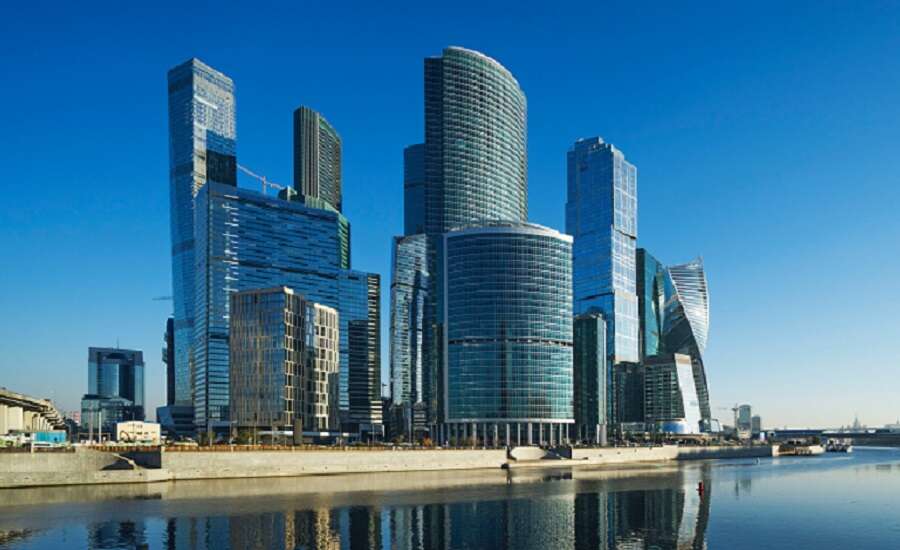
Photo by Alex Zarubi on Unsplash
History of Moscow City
Moscow City was first conceived in 1991 by honoured Soviet architect Boris Tkhor, who proposed to construct a business center in Moscow. It would be complete with gleaming skyscrapers rivalling those of New York and London, to reflect the new life and growing ambitions of post-Soviet Russia.
The chosen site was a stone quarry and disused industrial zone in western Moscow, in between the Third Ring Road and Moskva River. Initially, the territory was divided into 20 sections arranged in a horseshoe shape around a central zone. The skyscrapers would increase in height as they spiralled around the central section, with shorter structures built on the waterfront to give the taller buildings behind a view of the river.
Architect Gennady Sirota, who contributed to iconic projects such as the Olympic Sports Complex on Prospekt Mira, was selected as the chief architect, and many other world-famous architects were attracted to Moscow to realise their visions in Moscow City.
What can you see and do at Moscow City?
Where Moscow’s cityscape was once dominated by Stalin’s Seven Sisters skyscrapers , this is no more. Moscow City is home to eight of Russia’s ten tallest buildings, six of which exceed 300 metres in height. More buildings are still under construction there today, including the One Tower (which will be Europe’s second-tallest building). Once completed, Moscow City will comprise more than 20 innovative structures.
Each of Moscow City’s skyscrapers was designed by its own architect, lending the cluster of skyscrapers a unique appearance. Aside from being a site of architectural wonder, Moscow City is a place for leisure and entertainment with over 100 cafes and restaurants, exhibition spaces, cinemas, viewing platforms, and more.
Photo by Nikita Karimov on Unsplash
Federation Tower
- East Tower: 374m, 97 floors; West Tower: 243m, 63 floors
- Completed in 2017
- Architects: Sergey Tchoban and Peter Schweger
The East Federation Tower is the tallest building in Moscow, and the second-tallest building in Europe after the Lakhta Centre in St Petersburg. Visitors can enjoy a luxurious meal of seafood, truffles or steak at restaurant ‘Sixty’ on the 62nd floor of the West Tower, or visit Europe’s highest observation deck, ‘Panorama 360’, on the 89th floor of the East Tower.
Did you know? The ice cream and chocolate shop on the 360 observation deck are the highest in the world!
- South Tower: 354m, 85 floors; North Tower: 254m, 49 floors
- Completed in 2015
- Architect: Skidmore, Owings & Merrill LLP
The South OKO Tower is the third-tallest building in Russia and Europe. Here, you can visit ‘Ruski’ to dine on hearty Russian cuisine cooked on a real Russian stove, and have a drink in the ice bar. Alternatively, visit restaurant, nightclub and performance space ‘Birds’; the restaurant is the highest in Europe, situated on the 86th floor roof terrace alongside an observation deck. The OKO Towers are also home to karaoke club ‘City Voice’.
Did you know? Underneath OKO Towers is the largest underground parking in Europe, with 16 levels and 3,400 parking spaces.
Mercury Tower
- 339m tall, 75 floors
- Architects : Mikhail Posokhin, Frank Williams, Gennady Sirota
Another multifunctional skyscraper, which was designed as the first truly ‘green’ building in Moscow. The Mercury Tower has a distinct geometric shape and copper-coloured glazing, and was the tallest building in Europe upon completion. Visit ‘More i myaso’ (Sea and meat) on the first floor of the tower to enjoy European and Mediterranean cuisine whilst surrounded by greenery. On the 2nd and 40th floors a modern art gallery, the ‘ILONA-K artspace’, has just opened.
City of Capitals
- Moscow Tower: 302m, 76 floors; St Petersburg Tower: 257m, 65 floors
- Completed in 2009
- Architect: Bureau NBBJ
The unique geometric design of the City of Capitals towers resembles stacks of rotating blocks, and is rooted in Constructivism of the early Soviet period (many Soviet Constructivist buildings can be found in Moscow). Visitors to the Moscow Tower can enjoy a range of cuisines – traditional Italian dishes on the summer terrace of ‘Tutto Bene’, Panasian cuisine in the tropical luxury of the ‘Bamboo Bar’ on the 1st floor’, and poke or smoothie bowls at ‘Soul in the Bowl’ cafe on the 80th floor.
Tower on the Embankment
- Tower A: 84m; Tower B:127m; Tower C: 268m, 61 floors
- Completed in 2007
- Architects: Vehbi Inan and Olcay Erturk
After completion, the Tower on the Embankment was the tallest building in Europe, and is now the 13th tallest. It houses the headquarters of several large Russian and international companies, including IBM and KPMG. There are two cafes located on the 1st floor of Tower C – self-service café ‘Obed Bufet’ (Lunch Buffet) and Bakery Chain ‘Khleb Nasushchny’ (Daily Bread).
Evolution Tower
- 255m tall, 54 floors
- Architects: Philip Nikandrov and RMJM Scotland Ltd
Evolution is Moscow City’s most recognisable tower, and the 11th tallest building in Russia. Its façade is a true architectural marvel, comprising continuous strips of curved glazing spiralling high into the sky. According to the architect, Philip Nikandrov, the spiral shape of the tower honours centuries of architectural design in Russia, from the onion domes of St Basil's Cathedral to Vladimir Shukhov’s Tatlin Tower, a masterpiece of Constructivist design. Outside the Evolution tower is a landscaped terrace and pedestrian zone descending to the Presnenskaya Embankment, which was also designed by Nikandrov.
Did you know? Moscow’s largest wedding palace was supposed to be built on the site of the Evolution tower, though the project was abandoned.
- 239m tall, 60 floors
- Completed in 2011
Imperia’s interesting design has a curved roof and an arched glass façade. Inside the tower are various cafes including ‘City Friends’ for all-day breakfasts and light lunches, ‘Mama in the City’ for simple meals of Russian cuisine, and ‘abc kitchen’ for European and Indian-inspired dishes. Alternatively, visit ‘High Bar’ on the 56th floor for cocktails with a view. In Imperia you’ll also find the Museum of High-Rise Construction in Moscow (suitably located on the 56th floor), and the Camera Immersive Theatre.
Did you know? Inside Vystavochnaya metro station is the Metro Museum , dedicated to the history of the beautiful Moscow Metro!
- 130m tall, 26 floors
- Completed in 2001
- Architect: Boris Tkhor
Tower 2000 was Moscow City’s first tower. It stands on the opposite bank of the Moskva River, and houses a viewing platform from which visitors can admire an unparalleled panorama of Moscow City. The Bagration Bridge reaches across the river from the tower to Moscow City, and underneath are piers from where you can take boat trips.
Photo by Alexander Popov on Unsplash
Afimall is Moscow’s largest entertainment and shopping complex, home to 450 shops, cafes and restaurants, a cinema, and a virtual-reality game park. The shopping centre is located in the central section of Moscow City, and a cinema and concert hall are currently under construction there.
What’s nearby?
Sechenov Botanical Gardens: The botanical gardens of the First Moscow State Medical University was created for students’ training and research in 1946. Today it is open for free visits, and is home to a large arboretum.
Park Krasnaya Presnya: This park belonged to the Studenets estate of the Gagarin princes. It is a monument of 18th and 19th century landscaping, with Dutch ponds, ornate bridges, and tree-lined alleys. There are also sports facilities, sports equipment rental, and cafes.
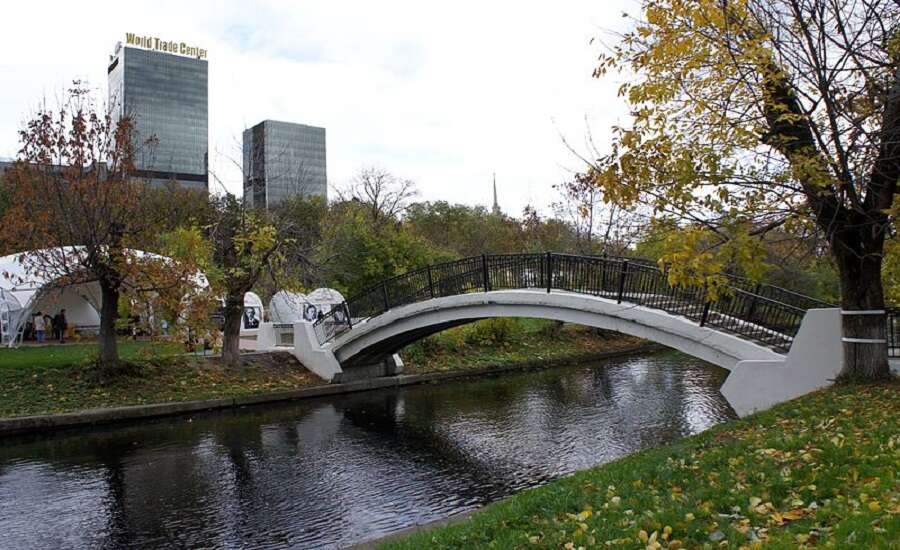
Photo by Akkit on Wikipedia
Essential information for visitors
Website: https://www.citymoscow.ru/
Email: [email protected]
Phone: +7 (495) 730-23-33
Nearest metro: Mezhdunarodnaya (closest to the skyscrapers), Delovoy Tsentr (underneath Afimall), Vystavochnaya (closest to Expocentre)
Related Tours

Moscow - St. Petersburg 3-star cruise by Vodohod
This is our most popular cruise covering Moscow and St. Petersburg and all of the significant towns between these 2 cities. Besides the Two Capitals, you will visit the ancient towns of Uglich, Yaroslavl and Goritsy, the island of Kizhi, and Mandrogui village.
Cruise Ship

Two Capitals and the Golden Ring
This tour covers the best sights of Moscow and St. Petersburg along with a trip to the Golden Ring - a group of medieval towns to the northeast of Moscow. Ancient Kremlins, onion-shaped domes and wooden architecture is just a small part of what awaits you on this amazing tour.
Accommodation
PRIVATE TOUR
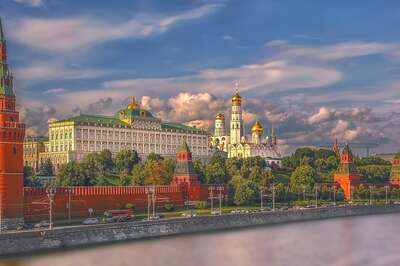
Classic Moscow
This is our most popular Moscow tour that includes all the most prominent sights. You will become acquainted with ancient Russia in the Kremlin, admire Russian art in the Tretyakov Gallery, listen to street musicians as you stroll along the Old Arbat street, and learn about Soviet times on the Moscow Metro tour.
Our travel brands include
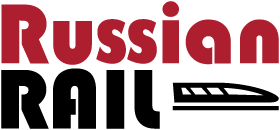
Express to Russia
Join us on Facebook
We invite you to become a fan of our company on Facebook and read Russian news and travel stories. To become a fan, click here .
Join our own Russian Travel, Culture and Literature Club on Facebook. The club was created to be a place for everyone with an interest in Russia to get to know each other and share experiences, stories, pictures and advice. To join our club, please follow this link .
We use cookies to improve your experience on our Website, and to facilitate providing you with services available through our Website. To opt out of non-essential cookies, please click here . By continuing to use our Website, you accept our use of cookies, the terms of our Privacy Policy and Terms of Service . I agree
- International edition
- Australia edition
- Europe edition

What is Labour’s plan for rail travel and will it make tickets cheaper?
Party wants to fully nationalise train network within five years of coming to power, in ‘biggest rail reform for a generation’
Labour has made one of its most radical proposals yet in the run-up to an election campaign: to fully nationalise the train network within five years of coming to power.
The party has pledged to guarantee the cheapest fares as part of “the biggest reform of our railways for a generation”, bringing all passenger rail into national ownership under the Great British Railways (GBR) body.
So, how difficult would the plan be to enact and what does it mean for passengers?
How would Labour’s plan for Great British Railways change the way the trains are run?
The headline change is nationalisation: the ambition that all passenger train operations, at least, should return to public ownership. But the wider aim is that control of trains and tracks – “wheels and steel”, as some put it – is brought back under one unified structure, at arm’s length from the government.
The actual railway infrastructure is already managed by the state-owned Network Rail, since the disastrous tenure of Railtrack in the early days of privatisation, and train operations in Scotland, Wales and a large chunk of England are in public ownership. So a fully renationalised railway (bar the rolling stock and freight) is not as big a step as it may once have sounded – and arguably the pragmatic extension of the plans drawn up by the Conservatives in 2021, to end the fragmentation and waste in the system.
How long will the changes take?
Labour said it would get the ball rolling on day one. Given the years it has taken for the Conservatives’ GBR plans to crystallise into a draft bill that has scant chance of passing before an election, supporters of the changes would be forgiven for not holding their breath for legislation. But some of the spadework has been done by the GBR transition team, and Labour will be hoping for a more stable tenancy in Downing Street to see the policy through. It is, it stresses, a long-term plan.
As far as nationalisation of the train operators goes, most of the contracts of remaining operators will expire naturally within the next term, while the government can exercise break clauses in others, such as Avanti West Coast and Cross Country.
What would the trains look like?
Eventually, they would all be GBR-branded trains rather than the individual liveries and logos of different operators. Labour hopes that this will make things simpler for passengers, avoiding confusion over ticketing, as well as cutting costs.
Would it make train travel cheaper?
Possibly, but not for a while yet. Labour says it wants to make the railway more affordable but has definitively avoided any pledges to cut or even freeze the overall level of fares.
However, it believes that its plans will eventually save £2.2bn a year by avoiding the duplication and bureaucracy brought on by the current system, where the Department for Transport tightly controls and specifies contracts for the private firms, and reams of staff are employed in back-end roles. That could give ministers some scope to use more of the billions in annual taxpayer subsidy to bring fares down long-term.
What about this best-price guarantee?
Make that an “ambition”, according to the policy document . It’s testament to the complexity, or occasional absurdity, of UK rail fares that even after years of industry focus on improving the system, renationalising looks an easier promise than telling a passenger they’ve paid the right amount.
Things can be improved, Labour says, as contactless tap-in and tap-out payments extend through more and more of the country, opening up the possibility of a Transport for London-style system, where fares are streamlined and automatically capped or refunded.
The shadow transport secretary, Louise Haigh, pointedly chose the headquarters of Trainline in central London to launch her plans on Thursday, paying tribute to the travel app firm’s “relentless focus on passengers [and] improving their experience”. Trainline shares fell 10%, even though Labour says it has no plans to replace the private firm with a single state retailer.
But given that the app’s business depends on people paying extra to cut through the railway’s confusing fares, fragmentation and lack of a decent central ticketing site, Trainline shareholder nerves might be taken as a vote of confidence that GBR will improve the industry’s own offering.
How else might passengers benefit?
Labour says it would leave the running of the railway to the experts – but the transport secretary would set strategy and take on the role of passenger-in-chief, and the industry would not be “marking its own homework”.
The plan aims to strengthen the voice of passengers by rolling together the various bodies currently meant to be standing up for them – the watchdog Transport Focus and the little-known Rail Ombudsman, as well as a few divisions of the Office of Rail and Road.
What will happen to the private operators?
Their representatives at Rail Partners warn that it will be “messy” and the railway will lose their expertise. But the people actually running train operators, right up to the managing directors, have typically stayed in post with a different coloured badge when the owning groups moved on, and passengers at say, Southeastern or LNER may not feel life is very different. Firms once regarded as pillars of privatised rail such as Stagecoach, National Express (now Mobico) and Virgin have long exited UK rail already, pursuing business elsewhere.
- Rail industry
- Rail transport
- Transport policy

British railways under Tories are symbol of national decline, says Labour

Labour promises rail nationalisation within five years of coming to power

‘He made politics human’: Birkenhead mourns beloved MP Frank Field

Tributes paid to Frank Field, former Labour minister, who has died aged 81

Lisa Nandy urges support for UN relief agency for Palestinians

Nearly 1m UK pensioners living in deprivation, official figures show

Angela Rayner handling house sale controversy ‘in right way’, says Yvette Cooper

Bambos Charalambous readmitted to Labour party after investigation

Wes Streeting defends Labour plan to use private sector to cut NHS backlog
Most viewed.

Welcome to Moscow
Home to the University of Idaho, Moscow (aka Fest City) is known for its lively celebrations and charming hometown vibe. Whether you’re exploring picturesque landscapes, rocking out at a music festival or indulging in mouthwatering local cuisine, this welcoming city offers an array of experiences for every style of adventurer. The only question is, where should you begin?

Stay + Play
Looking for your ultimate basecamp? Take your pick of hotels in the heart of the action, cozy B&Bs and more.
Drink + Dine
Pop into one of our local eateries and sample everything from burgers to bouillabaisse. Or, sip your way through Moscow’s craft beer scene and find an ale to cure your ails.

Meet + Plan
If you’re searching for your next conference, business trip or company retreat destination, Moscow has it all. Boasting a variety of venues, tempting food and drink options and ample hotel accommodations, this town is sure to impress.
Upcoming Events
Immerse yourself in cinematic magic at a film festival or enjoy family-friendly fun at the annual Renaissance fair. Mark your calendars and stay up to date with the latest happenings in Fest City.

Colter’s Creek Barrel Tasting

Yarn in the Park
Moscow gift card.
It’s time to shop ’til you drop, local style! Snag this exclusive gift card and experience the magic of Moscow’s businesses.
Let’s Get Social!
Take us along on your adventures by tagging #VisitMoscowID .

Change Location
Find awesome listings near you.
Money latest: Morrisons shoppers are going to notice two changes in stores
Morrisons has launched two major changes for shoppers – with stores offering travel money and trolleys now featuring advertisements. Read this and all the latest consumer and personal finance news below - and leave your thoughts in the box.
Thursday 25 April 2024 19:51, UK
- Halifax hikes mortgage rates - as entire market moves upwards
- Renters' Reform Bill signed off - but with indefinite delay to no-fault evictions ban
- Morrisons rolls out bureau de change and trolley adverts
Essential reads
- The world of dark tourism - what is it, is it ethical, and where can you go?
- Money Problem : I have a mortgage offer - will it change now rates are rising?
- Savings Guide : Why locking into fixed-rate bond could be wise move
- 'More important than a will': What are lasting power of attorneys and how much do they cost?
- Cheap Eats : Michelin chef's secret lasagne tip - and expensive ingredient you shouldn't use
Ask a question or make a comment
Halifax has become the latest major lender to up mortgage rates.
They are putting up a range of deals by 0.2%.
BM Solutions also announced increases today.
It follows similar moves by TSB, NatWest, Virgin, Barclays, Accord, Leeds Building Society, HSBC and Coventry last week.
Lenders are responding to swap rates - which dictate how much it costs to lend money - rising on the back of higher than expected US inflation data, and concerns this could delay interest rate cuts there.
US trends often materialise elsewhere - though many economists are still expecting a base rate cut from 5.25% to 5% in the UK in June.
This is what average mortgage rates look like as of today...
Justin Moy, managing director of EHF Mortgages, told Newspage: "Yet more bad news for mortgage borrowers, as two of the biggest lenders announce increases to their fixed-rate products.
"As mortgage rates creep up and past 5% even for those with the largest deposits, we seem to be lacking a clear strategy of the government or the Bank of England on how rates will eventually fall.
"Even 2% inflation may not be enough to reverse the recent trends in rates."
Morrisons has launched two major changes for shoppers – with stores now offering travel money and trolleys featuring advertisements.
Announcing their bureau de change service, Morrisons said customers could exchange currencies in select stores or could place their money orders online at Morrisonstravelmoney.com.
Using the online service means customers can either click and collect their cash in certain Morrisons stores or at any of Eurochange's 240 branches. Alternatively, they can go for home delivery.
Services director at Morrisons, Jamie Winter, said the service "will provide our customers with easy access to a wide range of currencies at competitive exchange rates".
So far, stores in the following areas have travel money kiosks:
- Basingstoke
In other news, the supermarket chain rolled out a new trolley advertising across 300 stores in a partnership with Retail Media Group.
A sweetener used in drinks, sauces, savoury and sweet foods and chewing gum can cause serious damage to people's health, according to a new study.
Neotame, a "relatively new" sweetener, could damage the intestine by causing damage to healthy bacteria in the gut, according to the study, leading it to become diseased and attack the gut wall.
The study by Anglia Ruskin University (ARU), published in the journal Frontiers in Nutrition, found the negative effect of neotame "has the potential to influence a range of gut functions resulting in poor gut health", potentially impacting metabolic and inflammatory diseases, neuropathic pain, and neurological conditions.
The illnesses this could lead to include irritable bowel disease or insulin resistance.
Read the full story here ...
As we reported yesterday, a pilot programme is coming into force in Venice today that means visitors have to pay a €5 (£4.28) charge to enter the city.
Authorities say the pilot programme is designed to discourage tourists and thin the crowds that throng the canals during peak holiday season, making the city more liveable for residents.
Pictures have been emerging this morning of people queueing to register for a QR code that will allow them to enter after they have paid the charge - and officials carrying out checks on people inside the city.
People found to be contravening the rules can be fined up to €300 (£257).
As detailed in our story , the move has been met with anger among some in the city.
Venice is the first city in the world to introduce a payment system for tourists - but comments from its most senior tourist official suggested it may become a more common practice for major tourist hotspots in Europe.
Simone Venturini revealed the pilot programme was being closely watched by other places suffering from mass tourism - including other Italian art cities and hugely popular weekend-break destinations Barcelona and Amsterdam.
More than 160,000 people switched to Nationwide from other providers at the end of 2023, when the building society was offering a huge cash switching incentive.
According to figures from the Current Account Switch Service (CASS), Nationwide had a net gain of 163,363 account switchers between October and December, after leavers were taken into account.
It was the highest quarterly gain since the same period in 2022, when 111,941 switched to Nationwide.
The building society launched a £200 switching bonus for new joiners in September last year - the biggest giveaway on offer at the time. It withdrew the offer just before Christmas.
The latest CASS figures, which show Nationwide had 196,260 total gains before accounting for leavers, suggesting it could have spent up to £39m on nabbing customers from other providers in the last three months of the year.
Barclays and Lloyds Bank saw more modest net gains of 12,823 and 5,800 respectively, while the rest of the UK's big banks reported net losses.
NatWest and Halifax fared worst, losing over 40,000 more switchers each than they gained.
This week saw the last remaining switching offer on the market withdrawn.
Sainsbury's is having technical issues again - with shoppers taking to social media to say their deliveries have been delayed or cancelled.
The supermarket has been replying to customers saying: "I'm really sorry about the tech issues this morning.
"We're aware of the situation and are working to sort it as quickly as possible. In the meantime, we'd advise you place a new order for a future date."
Customer Andrew Savage wrote: "Order has not been delivered and no confirmation email this morning."
Another, John B Sheffield, said: "So angry! Just got through to your customer line after 40 min WAIT.
"Tells me NO DELIVERIES TODAY! tech problem? I've NO FOOD IN! ANGRY!"
In a statement to Sky News, a Sainsbury's spokesperson says: "A small technical issue affected some groceries online orders this morning.
"We have contacted these customers directly to apologise for the inconvenience."
In another update at 10am, the supermarket said that the issue has been resolved.
Responding to customers on X, Sainsbury's also offered those affected e-vouchers and details on how to rebook their orders.
It comes a month after the supermarket had to cancel almost all deliveries on a Saturday in mid-March due to another technical issue.
By Daniel Binns, business reporter
A potential $38.8bn (£31bn) takeover of UK-based mining company Anglo American has sent its shares soaring - and helped the FTSE 100 hit yet another record high this morning.
The attempted mega-merger, by larger Australian rival BHP, is currently being reviewed by Anglo American's board.
The deal, if it goes through, would create the world's biggest copper mining company - and comes as the price of the metal continues to climb amid soaring demand.
Anglo American's shares have surged as high as 13% this morning as news of the negotiations emerged.
The announcement also helped spur the FTSE 100 to a new intraday (during the day) high of 8,098 points.
The index, of the London Stock Exchange's 100 most valuable companies, has hit a string of records this week, including an all-time closing high of 8,044 points on Tuesday.
The score is based on a calculation of the total value of the shares on the index.
Also moving the markets are a string of company results which were published earlier on Thursday.
Among those issuing updates to investors was drugsmaker AstraZeneca. Its stock is up more than 5% after the firm reported quarterly profit and revenue above market estimates.
Unilever is also up 5% following similar better-than-expected quarterly figures.
Another good performer is Barclays - despite reporting a 12% fall in profits for the first three months of 2024. Its shares are up more than 4%.
That's because its quarterly figures are slightly better than expected, and the bank has said it expects its fortunes to improve later this year.
Meanwhile, as tensions in the Middle East continue, the price of a barrel of Brent crude oil continues to hover at a price of around $88 (£70).
This morning £1 buys $1.25 US or €1.16, similar to yesterday.
Every week we get experts to answer your Money Problems - usually on a Monday, but today we have a short, bonus addition in light of multiple lenders raising mortgage rates this week on fears an interest rate cut could be delayed to a little later this year (note: many economists still think it will come in summer).
A few readers have got in touch with questions similar to this one...
My remortgage is due to complete on 1 May. I already have an offer but with rates going up, is there any way at all my offer rate could increase? Saz681
We asked David Hollingworth, director at L&C Mortgages, to answer this one...
It's great news that you are already set up with a mortgage offer, Saz - ready to make a smooth switch to a new deal and/or lender, once the current one ends.
It does take time to set up a new mortgage so shopping around the market a good few months ahead will help you put everything in place and avoid slipping onto a high variable rate.
Fixed rates have been nudging up slightly but you have already got a formal offer in place so shouldn't worry.
Applying for a mortgage will generally secure that rate and the lender will then carry out any further checks to issue the mortgage offer.
The offer will be valid for a specified period, often for up to six months. Rates are always shifting for new customers but you can rest easy that your rate should be safe and sound for your switch in May.
This feature is not intended as financial advice - the aim is to give an overview of the things you should think about. Submit your dilemma or consumer dispute, leaving your name and where in the country you are, by emailing [email protected] with the subject line "Money blog". Alternatively, WhatsApp us here .
By Ollie Cooper , Money team
Interest in a phenomenon known as "dark tourism" has been steadily rising in recent years - but what is it?
To find out, we've spoken with tourism academic Dr Hayley Stainton and renowned dark tourist and author Dr Peter Hohenhaus, who runs a dark tourism website .
What is it?
In general, dark tourism involves travelling to sites connected to death or disaster.
"Dark tourism has been around for as long as we have been travelling to places associated with death," Dr Stainton says.
However, the term wasn't officially coined until 1996 by John Lennon, a professor of tourism at Glasgow Caledonian University, in Scotland.
"Not everyone is familiar with the term," says Dr Stainton, "[but] many people have been a dark tourist at some time or another, whether intentional or not."
Some examples of the most famous sites
- Auschwitz concentration camp, Poland
- 9/11 Memorial and Museum in New York, US
- Chernobyl, Ukraine
- Hiroshima and Nagasaki, Japan
- Choeung Ek "killing fields" and the Tuol Sleng genocide museum at the former S-21 prison in Phnom Penh, Cambodia
Areas with a degree of infamy, like Alcatraz, are extremely popular spots that also fall under the "dark tourism" umbrella.
How popular is it?
Dr Hohenhaus and Dr Stainton say they have noticed a rise in its popularity.
"Tourists are looking for more unique and unusual experiences," Dr Stainton says.
"This has seen a move away from the more traditional 'sun, sea and sand' type holidays to a variety of different tourism forms, which includes dark tourism."
Dr Hohenhaus adds: "Maybe people want to connect to more recent and hence more personally relevant history - that is definitely the case with myself."
He goes on: "I think I've learned more about the world through dark tourism than through all of my formal education or my previous academic career."
Is it ethical?
This is the big question associated with dark tourism.
Dr Stainton says that while problems do arise, the stigma around the practice is often misguided.
"People don't visit sites like the killing fields in Cambodia or the site of Chernobyl for 'fun' - they visit for the educational experience, as dark tourism is often also a form of educational tourism," she says.
Problems arise when tourists are not respectful to those who may have been impacted.
"For instance, taking inappropriate photos or laughing and joking when others may be in a state of mourning."
Notorious examples include people taking selfies outside Grenfell Tower and at Auschwitz.
"It is therefore imperative that dark tourists are considerate of those around them and respectful at all times," Dr Stainton says.
"As long as you are not just after a cheap sensationalist thrill - take dark tourism seriously and do it right, and it can be an immensely enriching thing to engage in." Dr Hohenhaus
Where could you go?
These are Dr Hohenhaus' recommendations:
- Ijen crater in Indonesia - where at night you can see the fabled blue flames of the sulphur mines next to the volcano crater lake;
- The Polygon, the former Semipalatinsk nuclear weapons test site of the USSR, now in Kazakhstan;
- The Goli Otok former prison island off the coast of Croatia;
- The Murambi memorial to the Rwandan genocide - which Dr Hohenhaus says is "certainly the very darkest place I have ever been";
- Majdanek concentration camp memorial near Lublin, eastern Poland.
What do you think of dark tourism? Is it misunderstood, educational or abhorrent? Let us know in the comments section...
John Lewis will be sharing its job interview questions online in an attempt to find the "best talent".
The retail chain hopes that allowing candidates to view questions before an interview will allow prospective employees to "really demonstrate what they can do" and prepare, the Financial Times reports.
John Lewis talent acquisition lead Lorna Bullett told Sky News that interviews can feel daunting and "nerves can seriously impact performance".
She added the company want "the right people" from a variety of backgrounds and with "the best talent" to join.
"It makes absolute business sense to find ways of helping candidates to really demonstrate what they can do," she said.
Ms Bullett added that the process will be "no less rigorous".
Be the first to get Breaking News
Install the Sky News app for free

What is Sling TV?
How much is sling tv.
- What channels can you stream?
- Is there a free plan?
- What devices are supported?
What is Sling TV like to use?
Is sling tv worth it, the bottom line, sling tv review: essential cable channels for cord-cutters on a budget.
When you buy through our links, Business Insider may earn an affiliate commission. Learn more
Sling TV is one of the best live TV streaming services you can sign up for without breaking the bank. With plans starting at $40 a month, it's an excellent midrange option with a healthy assortment of popular channels and features that cord-cutters crave.
But Sling isn't the only live TV option out there, and there are some areas where it falls behind more expensive services. To help you decide if Sling TV is the right choice for you and your household, we've broken down everything you need to know, including our thoughts on what it's like to use and how it stacks up to its main competitors.
For just the essentials without any extra fluff, Sling TV is the streaming service you're looking for. It's more customizable than other plans, with three options you can choose from, so you pay for only what you need. New members get their first month for $25 off.
- Check mark icon A check mark. It indicates a confirmation of your intended interaction. Two affordable base plans to choose from
- Check mark icon A check mark. It indicates a confirmation of your intended interaction. Options with sports or local networks
- Check mark icon A check mark. It indicates a confirmation of your intended interaction. Up to three simultaneous streams
- con icon Two crossed lines that form an 'X'. Certain channels are exclusive to Orange or Blue
- con icon Two crossed lines that form an 'X'. Gets pricey once you start adding extra channel packages
- con icon Two crossed lines that form an 'X'. Local channels limited to select cities and no option to get CBS
Sling is a live TV streaming service that offers access to many popular cable and satellite channels via an internet connection. That means no bulky cable boxes or tricky contracts, and you can get Sling for a fraction of the cost of most traditional pay-TV providers.
The service offers two primary plans geared toward different types of programming: Sling Orange leans toward sports, and Sling Blue toward news and entertainment. You can also combine both plans to get access to all of their channels, and there are add-on packages you can buy to unlock even more networks and premium stations, like Starz and Showtime.
Sling TV offers three primary plans, with prices starting at $40 a month. All Sling plans include 50 hours of DVR storage, but members can pay $5 a month extra to unlock DVR Plus with 200 hours.
Here's how much each of Sling TV's three main plans cost:
*Sling Blue and Orange + Blue pricing and total channel offerings vary depending on location. Local NBC, Fox, and ABC stations are only available in select cities. Members must pay an extra $5 in areas that include all three local stations.
What channels come with Sling TV?
Both Sling Orange and Blue start with the same selection of 25 channels, including popular cable networks like CNN, HGTV, Food Network, and more. But in addition to this base lineup, each plan has its own unique assortment of additional channels.
Orange has seven exclusive sports and family channels, including ESPN, Disney Channel, and Freeform. Meanwhile, Blue has 17 exclusive news and entertainment channels, including Discovery Channel and TLC, and local stations from ABC, Fox, and NBC in supported markets. On the downside, there is no option to stream your local CBS channel.
Sling TV also offers several add-on packages that you can purchase for an additional cost to unlock even more channels. Bundles like Sports Extra, Entertainment Extra, News Extra, and Kids Extra cost an extra $6 to $11 a month, each including anywhere from six to 14 additional channels. The Sports Extra add-on, for example, includes ESPNU, MLB Network, NBA TV, and more for $11 a month.
Many of these extra channels are included with base offerings from more expensive competitors like YouTube TV , Hulu + Live TV , and Fubo , but some viewers may prefer how Sling TV lets you save money by offering these networks as optional add-ons.
Check out our Sling TV channels guide for a full breakdown of networks and features included with each plan and add-on.
Does Sling TV offer a free plan?
Sling TV does offer a free streaming option called "Freestream" that anyone can watch without an account. Though this plan does not include any traditional cable or local networks, it does feature access to over 400 ad-supported live internet TV channels.
Some of these stations are offshoots of major networks that broadcast select content from their libraries. For instance, you can watch channels like AMC Thrillers and VH1 I Love Reality.
These free internet channels aren't a substitute for true cable or satellite TV offerings, but they're a nice option for cord-cutters who aren't ready to commit to a paid subscription.
How do I stream Sling TV?
The Sling TV app is supported on several media players and mobile products, including all of the best streaming devices from Apple, Roku, Fire TV, and Chromecast, as well as iOS and Android phones, Xbox Series X|S, web browsers, and more. The app is also available directly through many of the best TVs from brands like Samsung, LG, Sony, Hisense, Vizio, and TCL.
Check out a full list of every supported device on the Sling website .
After testing Sling on a web browser, smart TV, and Roku Ultra, we found the service to be intuitive and easy to use, an important characteristic for subscribers making the switch from cable. In our experience, streaming is stable and without interruption, but your results may differ based on your network connection quality.
Sling's interface lets you access a traditional channel guide where you can sort channels by their name or genre, and you can see which networks you've most recently watched. Once you choose a program and start watching live TV, you can press down on your remote to toggle an overlay on the bottom of the screen, which lets you see details about the program or jump into other content.
You can also press up on your remote to easily return to the full-screen guide from any live channel. The program you were watching keeps playing on a small pop-up screen in the lower right corner until you select another channel.
Outside the guide, Sling has a menu on the left side of the screen that lets you access a homepage with content recommendations, your DVR recordings, on-demand content, and settings. This is all simple to navigate, and there are no glaring omissions.
Sling is an excellent live TV streaming option for viewers who don't want to spend much money but still want more than the bare minimum. It lacks some perks that come with Hulu's pricier live TV service, like unlimited DVR and a complimentary Disney Plus subscription, but it includes some key networks that cheaper services, like Philo , are missing.
One of Sling's most attractive features is how it lets you choose between two affordable base plans to keep costs low. If you don't care about watching sports on ESPN networks, opting for Sling Blue at only $40 a month saves you a great deal of money compared to signing up for a service like Fubo, which costs double the price and forces you to pay for channels you might not want. Sling Blue even includes local channels in big cities, which is something that Philo's less expensive service lacks.
However, if you're looking for a live TV streaming solution to suit a big household with varied viewing needs, Sling may not be for you. Though you can customize a comprehensive plan with options for many different tastes by subscribing to Sling Orange + Blue and tacking on packages like the Sports Extra plan and DVR Plus, the cost adds up quickly. To get a fully inclusive Sling TV package with a channel selection and set of features that rivals Hulu + Live TV or YouTube TV's base offerings, you'll end up paying about the same or, in some cases, even more than those services charge.
Sling is ultimately best for people who just want an Orange or Blue plan to get the essentials of cable TV but don't want to pay extra for all the other channels that come with more expensive services.
Starting at $40 a month, Sling TV is a competitive option for subscribers who want an affordable live TV streaming service that provides popular news, sports, entertainment, and family programming.
It's considerably cheaper than most competing live TV streaming services, and it offers more sports and news channels than Philo, Sling's top budget competitor. Though Philo is even cheaper at just $25 a month, Sling has plans that include stations like ESPN, NFL Network, CNN, ABC, NBC, and Fox, which are all missing from Philo.
Ultimately, Sling TV cements itself as a unique midrange option that rests between Philo's true budget pricing and the more common $65-$75 starting prices of other live TV services. Options like Hulu + Live TV remain a better fit for people willing to pay more for additional channels and extra perks like unlimited DVR, but in an age of rising prices, Sling TV's lower costs provide a nice streaming solution for first-time cord cutters switching over from cable or satellite TV.
You can purchase logo and accolade licensing to this story here . Disclosure: Written and researched by the Insider Reviews team. We highlight products and services you might find interesting. If you buy them, we may get a small share of the revenue from the sale from our partners. We may receive products free of charge from manufacturers to test. This does not drive our decision as to whether or not a product is featured or recommended. We operate independently from our advertising team. We welcome your feedback. Email us at [email protected] .

- Main content
Visa-free travel from South Africa may end under immigration plan
Move comes less than three years after requirement for visas for travel from south africa was abolished.
Taoiseach Simon Harris: The Government will 'do more' to reduce the number of applicants for international protection coming over the Border. Photograph: Sam Boal/Collins Photos
Ministers will discuss a possible move to end visa-free travel from South Africa , as the Government’s efforts to tighten immigration and asylum processes continue.
The expected move comes less than three years after the need for visas for travel from South Africa was abolished and results from officials’ warnings that people from Zimbabwe and the Democratic Republic of Congo are travelling on South African passports.
Figures released by the Department of Justice show that the authorities are currently processing the applications of 198 people who arrived on South African passports this year – just over 3 per cent of the total.
It is expected to be discussed at a meeting of the Cabinet committee on migration and integration next Thursday.
Concerns for years in Department of Justice over immigrant investor programme
:quality(70):focal(642x483:652x493)/cloudfront-eu-central-1.images.arcpublishing.com/irishtimes/FUIEXSA4RLRX2VTDGIXWC7Q67Y.jpg)
Internal audit raised concerns about €1.25bn ‘golden visa’ scheme years before it was scrapped
:quality(70)/cloudfront-eu-central-1.images.arcpublishing.com/irishtimes/ZTX4INBEBUNAETF2AGT44V2JBE.jpg)
New laws needed to deal with asylum seekers arriving into State from North, says Taoiseach
:quality(70):focal(3907x2759:3917x2769)/cloudfront-eu-central-1.images.arcpublishing.com/irishtimes/HX6BIDUXMVDV5JIYQGVHN7JQU4.jpg)
On Wednesday, Taoiseach Simon Harris told a Dáil committee the Government would “do more” to reduce the number of applicants for international protection (IP) – or asylum – who were coming over the Border with Northern Ireland.
[ Migration system may be tightened over spike in international protection applicants ]
Minister for Justice Helen McEntee told a Dáil committee on Tuesday that more than 80 per cent of IP applicants were arriving in the State via Northern Ireland.
Mr Harris told the Oireachtas Committee that oversees the Departments of the Taoiseach, Finance and Public Expenditure: “We have to do more in this space. This wasn’t always the way. And, in fact, this is a relatively recent phenomenon”.
Mr Harris said measures introduced at airports had reduced the number of asylum seekers arriving, but that greater co-operation was needed between Garda and the Police Service of Northern Ireland on the issue.
Earlier Ms McEntee told RTÉ that more than 5,000 people had applied for asylum in Ireland this year, and that half of that number were “secondary movements”, where people come from another “safe” country to claim asylum in Ireland.
Elsewhere, the Government has written to church dioceses asking them to make buildings or lands available to help accommodate asylum seekers as part of a renewed push to find beds.
In 2022, the Government sought church lands to accommodate those fleeing the war in Ukraine but has now asked dioceses for assistance in helping house asylum seekers. This comes amid ongoing pressure to house 1,600 unaccommodated single males.
[ ‘This is for our town’: Ballina locals protest against plans to house families seeking international protection ]
Minister of State Joe O’Brien wrote to the dioceses in early March as well as seeking more local authority lands or buildings from the County and City Management Association (CCMA).
However, he was told that local authority’s ability to provide additional buildings was “severely limited”.
Mr O’Brien said: “Given the grave situation in terms of the number of people unaccommodated – many of whom are forced to sleep on the streets with all the obvious danger that entails – I feel it is incumbent on me to do everything within my power to try to assist the Trojan efforts of Minister O’Gorman and our officials within the Department of Integration.
[ Over 20,000 international protection applicants could apply for asylum in Ireland during 2024 ]
“On that basis I wrote to both the CCMA and each diocese, asking them to give serious consideration to their buildings and/or land portfolio with a view to trying to identify anything at all that might help alleviate the situation – even temporarily while we move towards the medium-term plan set out by Minister O’Gorman.”
- Sign up for push alerts and have the best news, analysis and comment delivered directly to your phone
- Find The Irish Times on WhatsApp and stay up to date
- Listen to our Inside Politics podcast for the best political chat and analysis
Pat Leahy is Political Editor of The Irish Times
Jack Horgan-Jones
Jack Horgan-Jones is a Political Correspondent with The Irish Times
IN THIS SECTION
‘catastrophic decline’ in numbers of wild salmon returning to ireland, ‘tough choices’ in stormont budget below level sought by every department, td’s daughter not allowed make savings investment because of family relationship to him, taoiseach announces €100m in funding to develop student accommodation, child benefit extension to students aged 18 and teens with disability to come in from may 1st, ‘i’m alone pretty much all the time. the older i become, the less hopeful i am this will change’, six arrested after gardaí ‘attacked’ at site for asylum seekers in wicklow, ‘she will live on in the hearts and minds of her many family and friends’: cyclist killed in dún laoghaire crash named, ‘more people are going to die in that hospital’: aoife johnston’s parents call for action after inquest verdict, latest stories, jaunting cars and bolting horses: on the trail of a forgotten irish travel writer, themes in mcgahern’s that they may face the rising sun have never been more relevant, millennium asset management takes short position in flutter, stella li of chinese car maker byd: ‘we don’t want to engage in a price war’.
:quality(70)/cloudfront-eu-central-1.images.arcpublishing.com/irishtimes/MOENYACS6VA77KV7ZXJ7HWR6UM.png)
- Terms & Conditions
- Privacy Policy
- Cookie Information
- Cookie Settings
- Community Standards
Starting a Travel Business: How to Become a Travel Agent
Briana Morgaine
17 min. read
Updated March 18, 2024
Free Download: Sample Travel Agency Business Plan Templates
If you’re someone who loves travel, meticulous planning, and helping others have great experiences, consider starting a travel business and becoming a travel agent.
After a sharp drop in international and domestic travel during the COVID-19 pandemic, air travel demand has returned to pre-pandemic levels.
Pent-up demand from families who put off trips is driving tourism activity even as fewer travelers cite the pandemic as a major concern. Those tourists are forecast to drive solid long-term growth in the worldwide travel and tourism industry – and plenty of business opportunities for those who can make vacation planning less stressful.
Becoming a travel agent can be fairly inexpensive, as business ventures go, and you can often get away with limited staff and little upfront cost.
That being said, success largely depends on finding the right niche in a fiercely competitive market, given the rise in online direct-to-consumer travel booking sites. So, if you want to be successful, you’ll want to focus a lot of your effort on your market research , branding, and marketing. You’ll need to know who needs your services—your target market—and what they’ll be willing to pay.
If this sounds right up your alley, keep reading. I’ve interviewed several founders of successful travel agencies for their advice on everything you need to get started, and I’ve also included plenty of links and resources to help you work through the process of starting your own travel business.
- 1. Create a plan for your travel business
Make no mistake: No matter what industry you’re in, a business plan is essential. You may not need a formal business plan if you’re not seeking a loan or investment funding for your business, but don’t skip it. Write a one-page business plan instead.
You can do it in less than an hour. Writing a business plan is scientifically proven to help you grow faster , so don’t skip this step.
What kind of travel agent are you interested in becoming? If you’re planning to be a home-based travel agent, you’ll want to look into finding a host travel agency where you’ll essentially be an independent contractor. If this is the type of travel business you’d like to start, the business planning process should be fairly straightforward.
However, if you’re looking into starting your own travel business from the ground up, you’ll be looking at a much more lengthy planning process—but you’ll also have more flexibility to build a business that’s all your own.
Brought to you by
Create a professional business plan
Using ai and step-by-step instructions.
Secure funding
Validate ideas
Build a strategy
A case for starting early
“In starting ADDISON Yacht Charters , we began market analysis and business planning efforts a full year before we launched the company in November 2013,” says owner Scott Bessette.
“During that period, we attended industry events such as regional yacht shows in the Virgin Islands, Antigua, Florida, and Monaco to acquire as full an understanding as possible with regards to what products and services were being delivered to the market, who was delivering those products and services, and who was purchasing those products and services,” he explains.
Starting the planning process early helped Scott hone in on his vision for his business. “In this manner, we determined what our market niche could be, and established whether or not we could compete in the existing market, and what it would take to succeed,” he says.
Scott was able to get a clear sense of where he wanted to take it, and how to tailor his business to best suit the market needs.
What kind of travel agent business plan will you need?
The kind of travel agency business plan you’ll need will vary depending on what kind of funding you’re looking for.
Are you hoping to eventually run a large travel agency, and interested in seeking a loan, or maybe investment from angel investors? You’ll want a formal business plan for a travel agency that contains all the necessary information on your business. Are you more interested in becoming a travel agent using your own savings, without seeking outside investment or loans? A more lightweight one-page plan might be a perfect fit for your business.
Even if you do intend to pitch your business idea to lenders and investors, you can start with a Lean Plan, and flesh out the rest of the info later on.
Whatever your specific reason for writing a business plan for your travel business, the most important thing is that you write one, period. The travel industry is fragmented , and having a clearly defined niche and a plan will help you stand out. Writing a business plan for your travel agency will help you narrow in on what your goals are, and establish a clear, focused vision going forward.
We’ve covered nearly every aspect of writing a business plan here on Bplans, so be sure to check out the links below when you’re ready to get started. We also have several travel industry business sample plans, which will give you an idea of what your business plan should look like.
Resources to help you create a business plan for a travel agency:
- How to Write a Business Plan
- Travel Agency Sample Business Plan
- 2. Conduct market research and find your niche
What kind of travel agency do you plan on starting? Moreover, what kind of travel business does the industry or your local community actually need?
“When you launch a travel business, the most important thing to do is to provide a valuable service,” says Jacquie Whitt, owner of Adios Adventure Travel .
This means doing some market research to find out what kind of travel agent or travel business the market really needs. Is there a niche you can fill? Maybe there’s an opening in the travel market to provide destination adventure honeymoons for young couples who would rather go backpacking than relax on the beach. Think about the people in your local community too—do they need something specific?
“In a saturated luxury travel market, Urbane Nomads had to distinguish itself from more seasoned players from the get-go,” says founder Hajar Ali. “The dual elements of adventure and luxury was an unexplored niche which we filled very well.”
Hajar says of Urbane Nomads: “It was conceived as the kind of travel company that would remain relevant in the age where most travel-related bookings are made online. We specialize in the sort of experiences that can’t be booked online—adventurous trips to non-mainstream destinations, lodges that can’t be booked online—or indeed, by non-travel professionals—and special experiences and access to personalities that would have been impossible without the personal connections.”
What niche are you filling? Start by researching the travel market in general. Find out who the major players are that you’ll be competing against, determine who your ideal customer is, and define what they want.
Resources to help you do market research and determine your niche:
- Practical Market Research Resources for Entrepreneurs
- How to Do Market Research
- How to Create a Unique Value Proposition
- How a Buyer (or User) Persona Can Improve Your Business
- What Is Target Marketing?
- 3. Develop a brand as a travel agent
Once you’ve determined what the market looks like and what specific niche you’ll be filling, it’s important to get down to the nitty-gritty of creating a strong brand image .
As the travel industry is so competitive, having a well-developed brand will help your business stand out. How do you want your customers to feel when they visit your website, view your advertising, or use your services?
Lorne Blyth, Founder and Director of Flavours Holidays, had a very specific vision for her brand. “[At Flavours Holidays], we have been specializing in cooking, Pilates, painting, photography, and language holidays in Italy since 1998,” she says. Lorne’s vision was to create a brand that “gave guests a true taste of Italy.”
“I use that as part of my branding, as we would like to perceive ourselves as being experts on all things Italy,” says Lorne. “That is why our tagline is ‘Passionate, Inspiring, Authentic.’”
Why should customers use your services, rather than just book a trip themselves? What experience can you provide that others can’t?
Do you offer unique services, such as partnerships with the locals of your travel destinations, that customers wouldn’t have access to otherwise? Is your selling point the ease of having someone else plan your trip for you, down to the last detail? Are you all about personal touches and a great customer service experience?
This is the first step to determining your travel business’s brand strategy— determining who you are. We’ve gone in-depth on how to build a memorable brand for your business, so check out the articles below for more information on branding.
Resources to help you brand your travel business:
- The Definitive Guide to Building a Brand
- Your Brand’s Tone of Voice: Why It Matters and How to Craft It
- 4. Deal with the legal side
A travel business is, for the most part, a fairly simple one to set up. Unlike starting a brewery or starting a dispensary , there isn’t a lot of legal red tape when it comes to becoming a travel agent and starting a travel business.
Determining if you’ll require licensing
In most locations, you won’t need any specific licenses or certifications, but licensing requirements will vary by state and country.
For the U.S. in general, there is no specific license needed to start a travel business; however, state laws vary . In California, Washington, Hawaii, Iowa, and Florida, you’ll need a Seller of Travel license. Canada also has licensing requirements that vary by location, and in the U.K., you’ll need an Air Travel Organiser’s License .
Choosing the structure of your travel business
Beyond specific licenses, there are general licenses that you’ll need before you start any type of business.
First off, choose your business structure . Scott Bessette, owner of ADDISON Yacht Charters, started his travel agency as an LLC , which he says suited his business needs. “Before we considered starting our agency, we determined that a Limited Liability Company was the appropriate structure for what we were trying to achieve.”
Why was an LLC the best choice? “We had no intention of going public, or having to secure formal investment,” he says. “Further, we had a very simple organization structure, so ease of governance and compliance drove our choice of corporate structure.”
However, the business structure you choose will depend largely on your plans for your business, and how you intend to fund it. If for example, you plan to seek outside investment, you may want to look into starting your business as a corporation .
Naming your business and applying for a Federal Tax ID number
You’ll also want to formally name your business (even if it’s just you, becoming a travel agent!), which involves filing a DBA , or a “doing business as.” You’ll also need to apply for a Federal Tax ID number , otherwise known as a Federal Employer Identification Number (EIN or FEIN). We’ve covered these topics in plenty of detail, so be sure to check out the links.
Scott also adds that setting up the legal end of things was fairly simple.
“Establishing the legal and licensing requirements was one of the easiest aspects of starting the business,” he explains. “All said, conception and gestation of ADDISON Yacht Charters was long-term, but she was born after only two days of hard labor.”
Resources to help you determine the legal structure and name for your business, as well as other legal considerations:
- The Complete Guide to Choosing Your Business Structure
- The Complete Guide to Registering Your Business Name
- Resources and Tools to Help You Name Your Business
- How to Apply for a Federal Tax ID Number
- How and Where to Obtain Business Licenses and Permits
- Keep Your Startup Safe from Legal Trouble
- 5. Determine your funding strategy
How do you plan to fund your new travel business?
Luckily, your starting costs should be fairly low: You won’t have expensive equipment to buy, and you probably won’t need extensive space in the beginning. If you’re hoping to become a travel agent working out of your own home, you may not even need office space at all.
However, be sure to have a plan in place for how you will obtain funding. You’ll need funds for marketing materials at the very least; both online, such as your business website , and offline, such as flyers, posters, business cards, and more . Your initial funding budget will also likely go toward any branding or advertising, and you may eventually also decide to rent office space and hire employees, which is a fairly large expense.
Unlike many businesses, there isn’t one tried-and-true path for funding a travel business. From personal funds to venture capital funding, it’s all a possibility.
Many travel agencies are self-funded since they have low initial overhead and can be started fairly easily (though face stiff competition to stand out). “I didn’t get any funding at all, apart from $2,000 borrowed from my dad for the website,” says Brady Hedlund, founder of Life Before Work.
Looking into loans and a line of credit is also a good first move. “We developed banking and relationships with firm lines of credit and support, to ensure that as we started to deliver, funds were available to spend before the client paid the bill,” says Scott of ADDISON Yacht Charters. “ Cash flow is critical to the appearance of a business’s success.”
However, when it comes to financing your travel business, angel investment, and even venture capital funding isn’t completely out of the question. “We formed an LLC to start Project Expedition and closed a $300k seed round in January 2015 to help drive the development of our MVP (minimum viable product),” explains founder Jeremy Clement.
Don Halbert, owner of Costa Rica Vacations , also funded his travel agency through venture capital. “Funding for this venture came from a venture capital company which would later become one of our primary partners,” he explains.
Resources to help you with the funding process:
- How to Get Your Business Funded
- 35 Great Ways to Fund A Small Business
- What Do Venture Capital Firms Want?
- 10 Tips for Finding Venture Funding
- 6. Choose a location and hire employees
Next, you’ll want to make a plan for the logistics of opening your travel business to the public. If you’re starting a travel agency and require office space, this section will likely be more relevant than if you plan to work as a travel agent out of your home.
How many employees will you need to hire? You may not need any to start, until you decide to expand your operations.
You might also want to look into remote employees , suggests Mike Liverton, CEO and founder of Leavetown Vacations . “While many company employees live and work as home-based ‘Destination Experts,’ our main headquarters are downtown Vancouver,” he says.
Additionally, you’ll want to determine your business location . While foot traffic will likely not be a primary motivator in choosing a business location, you’ll want to pick somewhere that accommodates your space needs as well as reflects your desired brand image.
However, as with employees, you’ll find that a physical location isn’t always an absolute necessity. “We have never booked a client from our hometown,” says Scott.
“We’re a 24/7 business, that cannot be limited to when I am in the office, or more importantly, marginalized when I am not,” he explains. “The ADDISON staff has families, conflicts, and important events in their lives. We constructed and positioned our business to be virtual in nature; to be operational anywhere, anytime. I’ve conducted business from Europe, the Caribbean, from multiple states, and during my children’s sporting events.”
“We didn’t choose our business location, we chose a virtual location,” he adds. Whether or not you choose to go this route will depend on your specific niche and brand; however, it’s certainly an option to consider.
Resources to help you set up your travel business and hire employees:
- How to Choose a Business Location
- 13 Out of the Ordinary Ways to Find the Perfect Business Location
- How to Hire Your First Employee
- A Comprehensive Guide to Creating a Business Website
- 7. Market and launch your travel business
Marketing will likely be where the majority of your initial funding budget goes, as it’s an important area to focus on when becoming a travel agent and starting a travel business. In fact, it’s a good idea to come up with a marketing plan as soon as possible.
For Don, the idea that you must spend money to make money drove the marketing strategy behind Costa Rica Vacations.
“Our ‘lesson learned’ in starting up our agency was primarily the realization that your Google Adwords budget can single-handedly determine your success when starting out in this normally competitive market,” he says.
Don’t make the mistake of thinking that all your advertising efforts should revolve around paid advertising, however. Plenty of your focus should go into social media marketing and guerrilla marketing tactics.
“I started out eight years ago running backpacking trips to Thailand, advertising using only lean, guerrilla marketing tactics,” says Brady Hedlund of Life Before Work. “I created an itinerary and website and hit the streets of western Canada to promote my new company.” Since his target demographic was 18-30-year-olds looking for an ‘adventure party tour,’ he went to university campuses and handed out flyers and posted signs advertising his travel agency.
“I didn’t get a single call for over a year,” he explains. “I honestly had no idea what I was doing at the time, but eventually, the business picked up and began to grow at an exponential rate. Flash forward eight years, and we now have a team of 35 full-time staff operating in 18 countries.”
Your marketing strategy will, as with all aspects of starting a travel business, be largely dependent on your specific niche, the demographic you are after, your budget, and your bandwidth as a business. That being said, combining both paid advertising with other guerrilla tactics (both online and offline) will likely serve you well.
Resources to help you market and launch your travel business:
- How to Write an Effective Marketing Plan
- 20 Marketing Tools Every Small Business Owner Should Try
- A Beginner’s Guide to Google AdWords for Small Business
- How to Have the Best Opening Day Ever
- Words of advice: Final tips from entrepreneurs who have started successful travel businesses
- “We searched for quite some time to find an underwriter that would provide us with general liability insurance, due to the amount of risks involved in adventure travel…This is a tricky product when it comes to insurance, but it’s obviously a very important piece of the pie.” – Brady Hedlund, Life Before Work
- “From the beginning, I have built up relationships with various individuals in Italy to help recruit staff for the villas used during our vacations. This varies from local cooks to tour guides to drivers. The little touches along the way, from booking flights for guests to getting the transport back to the airport, all adds up as every little bit helps to create the perfect experience for my guests.” – Lorne Blyth, Flavours Holidays
- “It’s important that your business partners share your values. I work with people in South America who are now my friends. We’re not in it for the money; we enjoy our jobs and if we can ‘eke’ out a living, all the better.” – Jacquie Whitt, Adios Adventure Travel
Business plan template and travel agency resources
By now it should be clear that starting a travel agency requires a strategic approach and lots of planning. But don’t worry if it feels overwhelming. At Bplans, we have a full library of business planning resources to help you get started. You can browse through our free collection of over 500 real business plan examples , or download our free business plan template to help your travel business take flight.
Clarify your ideas and understand how to start your business with LivePlan
Bri Morgaine is a seasoned content marketing leader with a decade of experience in copy editing, social media operations, and content strategy— having honed her skills at industry giants like Palo Alto Software and Andreessen Horowitz.

Table of Contents
- Business plan template and travel agency resources
Related Articles

3 Min. Read
Yes, You Can Operate a Scarily Successful Halloween Business

10 Min. Read
Should You Serve Fair Trade Coffee?

11 Min. Read
How to Start a Successful Online Boutique

How To Start and Grow Your SEO Business
The Bplans Newsletter
The Bplans Weekly
Subscribe now for weekly advice and free downloadable resources to help start and grow your business.
We care about your privacy. See our privacy policy .

The quickest way to turn a business idea into a business plan
Fill-in-the-blanks and automatic financials make it easy.
No thanks, I prefer writing 40-page documents.

Discover the world’s #1 plan building software
Advertisement
Supported by
Could Trump Go to Prison? If He Does, the Secret Service Goes, Too
Officials have had preliminary discussions about how to protect the former president in the unlikely event that he is jailed for contempt during the trial.
- Share full article

By William K. Rashbaum
The U.S. Secret Service is in the business of protecting the president, whether he’s inside the Oval Office or visiting a foreign war zone.
But protecting a former president in prison? The prospect is unprecedented. That would be the challenge if Donald J. Trump — whom the agency is required by law to protect around the clock — is convicted at his criminal trial in Manhattan and sentenced to serve time.
Even before the trial’s opening statements, the Secret Service was in some measure planning for the extraordinary possibility of a former president behind bars. Prosecutors had asked the judge in the case to remind Mr. Trump that attacks on witnesses and jurors could land him in jail even before a verdict is rendered.
(The judge, who held a hearing Tuesday morning to determine whether Mr. Trump should be held in contempt for violating a gag order, is far more likely to issue a warning or impose a fine before taking the extreme step of jailing the 77-year-old former president. It was not immediately clear when he would issue his ruling.)
Last week, as a result of the prosecution’s request, officials with federal, state and city agencies had an impromptu meeting about how to handle the situation, according to two people with knowledge of the matter.
That behind-the-scenes conversation — involving officials from the Secret Service and other relevant law enforcement agencies — focused only on how to move and protect Mr. Trump if the judge were to order him briefly jailed for contempt in a courthouse holding cell, the people said.
The far more substantial challenge — how to safely incarcerate a former president if the jury convicts him and the judge sentences him to prison rather than home confinement or probation — has yet to be addressed directly, according to some of a dozen current and former city, state and federal officials interviewed for this article.
That’s at least in part because if Mr. Trump is ultimately convicted, a drawn-out and hard-fought series of appeals, possibly all the way up to the U.S. Supreme Court, is almost a certainty. That would most likely delay any sentence for months if not longer, said several of the people, who noted that a prison sentence was unlikely.
But the daunting challenge remains. And not just for Secret Service and prison officials, who would face the logistical nightmare of safely incarcerating Mr. Trump, who is also the presumptive Republican nominee for President.
“Obviously, it’s uncharted territory,” said Martin F. Horn, who has worked at the highest levels of New York’s and Pennsylvania’s state prison agencies and served as commissioner of New York City’s correction and probation departments. “Certainly no state prison system has had to deal with this before, and no federal prison has had to either.”
Steven Cheung, the communications director for Mr. Trump’s campaign, said the case against the former president was “so spurious and so weak” that other prosecutors had refused to bring it, and called it “an unprecedented partisan witch hunt.”
“That the Democrat fever dream of incarcerating the nominee of the Republican Party has reached this level exposes their Stalinist roots and displays their utter contempt for American democracy,” he said.
Protecting Mr. Trump in a prison environment would involve keeping him separate from other inmates, as well as screening his food and other personal items, officials said. If he were to be imprisoned, a detail of agents would work 24 hours a day, seven days a week, rotating in and out of the facility, several officials said. While firearms are obviously strictly prohibited in prisons, the agents would nonetheless be armed.
Former corrections officials said there were several New York state prisons and city jails that have been closed or partly closed, leaving wings or large sections of their facilities empty and available. One of those buildings could serve to incarcerate the former president and accommodate his Secret Service protective detail
Anthony Guglielmi, the spokesman for the Secret Service in Washington, declined in a statement to discuss specific “protective operations.” But he said that federal law requires Secret Service agents to protect former presidents, adding that they use state-of-the-art technology, intelligence and tactics to do so.
Thomas J. Mailey, a spokesman for New York State’s prison agency, said his department couldn’t speculate about how it would treat someone who has not yet been sentenced, but that it has a system “to assess and provide for individuals’ medical, mental health and security needs.” Frank Dwyer, a spokesman for the New York City jails agency, said only that “the department would find appropriate housing” for the former president.
The trial in Manhattan, one of four criminal cases pending against Mr. Trump and possibly the only one that will go to a jury before the election, centers on accusations he falsified records to cover up a sex scandal involving a porn star. The former president is charged with 34 counts of felony falsifying business records. If convicted, the judge in the case, Juan M. Merchan, could sentence him to punishments ranging from probation to four years in state prison, though for a first-time offender of Mr. Trump’s age, such a term would be extreme.
If Mr. Trump is convicted, but elected president again, he could not pardon himself because the prosecution was brought by New York State.
Under normal circumstances, any sentence of one year or less, colloquially known as “city time,” would generally be served on New York City’s notorious Rikers Island, home to the Department of Correction’s seven jails. (That’s where Mr. Trump’s former chief financial officer, Allen H. Weisselberg, 76, is currently serving his second five-month sentence for crimes related to his work for his former boss.)
Any sentence of more than a year, known as state time, would generally be served in one of the 44 prisons run by New York State’s Department of Corrections and Community Supervision.
The former president could also be sentenced to a term of probation, raising the bizarre possibility of the former commander in chief reporting regularly to a civil servant at the city’s Probation Department.
He would have to follow the probation officer’s instructions and answer questions about his work and personal life until the term of probation ended. He would also be barred from associating with disreputable people, and if he committed any additional crimes, he could be jailed immediately.
Maggie Haberman contributed reporting.
William K. Rashbaum is a Times reporter covering municipal and political corruption, the courts and broader law enforcement topics in New York. More about William K. Rashbaum
Our Coverage of the Trump Hush-Money Trial
News and Analysis
Prosecutors accused Donald Trump of violating a gag order four additional times , saying that he continues to defy the judge’s directions not to attack witnesses , prosecutors and jurors in his hush-money trial.
Trump’s criminal trial in Manhattan is off to an ominous start for the former president, and it might not get any easier in the days ahead. Here’s why.
The National Enquirer was more than a friendly media outlet for Trump’s presidential campaign in 2016. It was a powerful, national political weapon that was thrust into the service of a single candidate , in violation of campaign finance law.
More on Trump’s Legal Troubles
Key Inquiries: Trump faces several investigations at both the state and the federal levels, into matters related to his business and political careers.
Case Tracker: Keep track of the developments in the criminal cases involving the former president.
What if Trump Is Convicted?: Could he go to prison ? And will any of the proceedings hinder Trump’s presidential campaign? Here is what we know , and what we don’t know .
Trump on Trial Newsletter: Sign up here to get the latest news and analysis on the cases in New York, Florida, Georgia and Washington, D.C.

IMAGES
VIDEO
COMMENTS
Step 1: Executive Summary. Start with an executive summary, which provides a snapshot of your business. It should include your business name, location, and a brief description of the services you offer. This section should also highlight your unique selling proposition - what sets your tourism business apart from the competition.
The U.S. travel agency industry is valued at $48.5B with more than 90,600 businesses in operation and over 318,600 employees nationwide. Factors currently driving industry growth include an increase in domestic tourism and travel for overnight trips, vacations, and business purposes.
P25,365. P20,958. P10,959. Cash at End of Period. P25,365. P46,323. P57,282. Download This Plan. Explore a real-world travel tour agency business plan example and download a free template with this information to start writing your own business plan.
1.1 Objectives. Adventure Excursions Unlimited's objectives for the first three years of operation include: To create a service-based company whose #1 mission is exceeding customers' expectations. Capturing 25% market share of the high-end hard-adventure travel space. To develop a sustainable, profitable business.
Writing a tour operator business plan is a crucial step toward the success of your business. Here are the key steps to consider when writing a business plan: 1. Executive Summary. An executive summary is the first section planned to offer an overview of the entire business plan. However, it is written after the entire business plan is ready and ...
Travel Agency Business Plan Template [Updated 2024] Travel Agency Business Plan Template. Written by Dave Lavinsky. Over the past 20+ years, we have helped over 10,000 entrepreneurs and business owners create business plans to start and grow their travel agencies. On this page, we will first give you some background information with regards to ...
Travel Tour Agency Business Plan. Sephats Tours intends to provide individual and group travel to leisure clients. Travel and tourism is a fun and rewarding industry. Starting with a good business plan will help you succeed in this exciting field. To get started, check out a sample business plan for an upscale travel agency, international ...
In addition, highlight any milestones you have accomplished, such as the number of clients served, positive reviews, new travel agency openings, etc. 4. Conduct an Industry and Market Analysis. An industry and market analysis section is one of the most important ones in your travel agent business plan.
Even if you're creating your business plan for internal use only, conducting market analysis and research is an excellent way to gauge your position within your industry, identify areas of concern, and create an effective marketing strategy using the 7 Ps of Travel and Tourism Marketing. Things to consider in your market analysis include your ...
How To Start A Tourism Business: Step-By-Step Instructions. 1. Formulate A Plan For Your Business. First, you need to develop a clear business plan. Before setting the entity up, you'll need a concise vision and understanding of what the business will look like and the direction it is going in. Here are some important aspects to cover:
1. Business overview. This section of your tour operator/ tour agency business plan provides a holistic snapshot of your company, offering readers a clear understanding of your business's identity. Ideally, it should include the following: Business Name: Your business name should resonate with your target audience, conveying the essence of ...
Tour Operator Business Plan Template. Your tour operator business plan should contain at least seven sections: an executive summary, a company overview, a description of your services, an analysis of your market, an implementation plan, a team summary, and a financial plan. You might have one or more appendices at the end, if you have ...
Travel Agency Business Plan Template. At Business and Plans, we offer a wide range of Tourism business plan templates to cater to your specific needs. Whether you are starting a Hotel, Bed and Breakfast, or Travel Agency, we've got you covered. Our professionally designed templates will save you time and ensure your business is set up for ...
Pro Business Plans is a team of professional researchers, writers, designers, and financial. analysts. Speak with an advisor today. GET QUOTE. Speak with Sales (646) 866-7619. This article provides information on what is included in a Tourism business plan and how it is typically structured.
A good business plan can help your business secure finance, define the direction of your business, and create strategies to achieve your goals. A thorough and effective tourism business plan will include an executive summary, a business description, short and long term goals, business structure (legal and internal management structure), product or service description, a sales and marketing ...
Tourism data and research. Information about visitors and tourism trends can help you plan and operate your tourism business in Queensland. Use the latest data and research to help: predict upturns and downturns in different areas of your business; gain a better understanding of visitors' preferences and dislikes
Moscow travel guide for tourists and business travelers. Full and accurate online information and travel services to help plan any trip to Moscow, Russia. Find everything you need to know about Moscow here. HOME: ABOUT US: PARTNERSHIP: SITE MAP: FAQ/HELP: CONTACT US: CALL US @ 7-812-303-8647:
Tourism industry officials hope the province's marketing deal with the National Hockey League will result in a bump of business for Island golf courses, including Brudenell in eastern P.E.I ...
255m tall, 54 floors. Completed in 2015. Architects: Philip Nikandrov and RMJM Scotland Ltd. Evolution is Moscow City's most recognisable tower, and the 11th tallest building in Russia. Its façade is a true architectural marvel, comprising continuous strips of curved glazing spiralling high into the sky.
Travel Tour Agency Business Plan Template. Download this free travel tour agency business plan template, with pre-filled examples, to create your own plan. Download Now. Or plan with professional support in LivePlan. Save 50% today.
The plan aims to strengthen the voice of passengers by rolling together the various bodies currently meant to be standing up for them - the watchdog Transport Focus and the little-known Rail ...
Moscow is the biggest city of Russia, with more than 12 million citizens, 400 museums, 11 000 restaurants, and around 500 parks. Our individual tours are here to help you not to get lost in the Russian capital's vibrant rhythm and explore the most exciting spots of Moscow with our professional guides.
BELLEVUE, Wash. — April 23, 2024. What's the news: T-Mobile is launching two new internet plans — a premium version of Home Internet called Home Internet Plus and the Away plan for frequent travelers — to empower customers with more internet options for home and on the go. Why it matters: When the Un-carrier launched 5G Home Internet in 2021 to give people an alternative to traditional ...
Welcome to Moscow. Home to the University of Idaho, Moscow (aka Fest City) is known for its lively celebrations and charming hometown vibe. Whether you're exploring picturesque landscapes, rocking out at a music festival or indulging in mouthwatering local cuisine, this welcoming city offers an array of experiences for every style of adventurer.
By Daniel Binns, business reporter A potential $38.8bn (£31bn) takeover of UK-based mining company Anglo American has sent its shares soaring - and helped the FTSE 100 hit yet another record high ...
Wheel the World is an accessible travel agency offering bookings at over 3,000 verified accessible hotels in the United States. The hotels have been reviewed in person by trained assessors; only ...
Alyssa Powell/Business Insider Both Sling Orange and Blue start with the same selection of 25 channels, including popular cable networks like CNN, HGTV, Food Network, and more.
Ministers will discuss a possible move to end visa-free travel from South Africa, as the Government's efforts to tighten immigration and asylum processes continue.. The expected move comes less ...
1. Create a plan for your travel business. Make no mistake: No matter what industry you're in, a business plan is essential. You may not need a formal business plan if you're not seeking a loan or investment funding for your business, but don't skip it. Write a one-page business plan instead.
Anthony Guglielmi, the spokesman for the Secret Service in Washington, declined in a statement to discuss specific "protective operations." But he said that federal law requires Secret Service ...